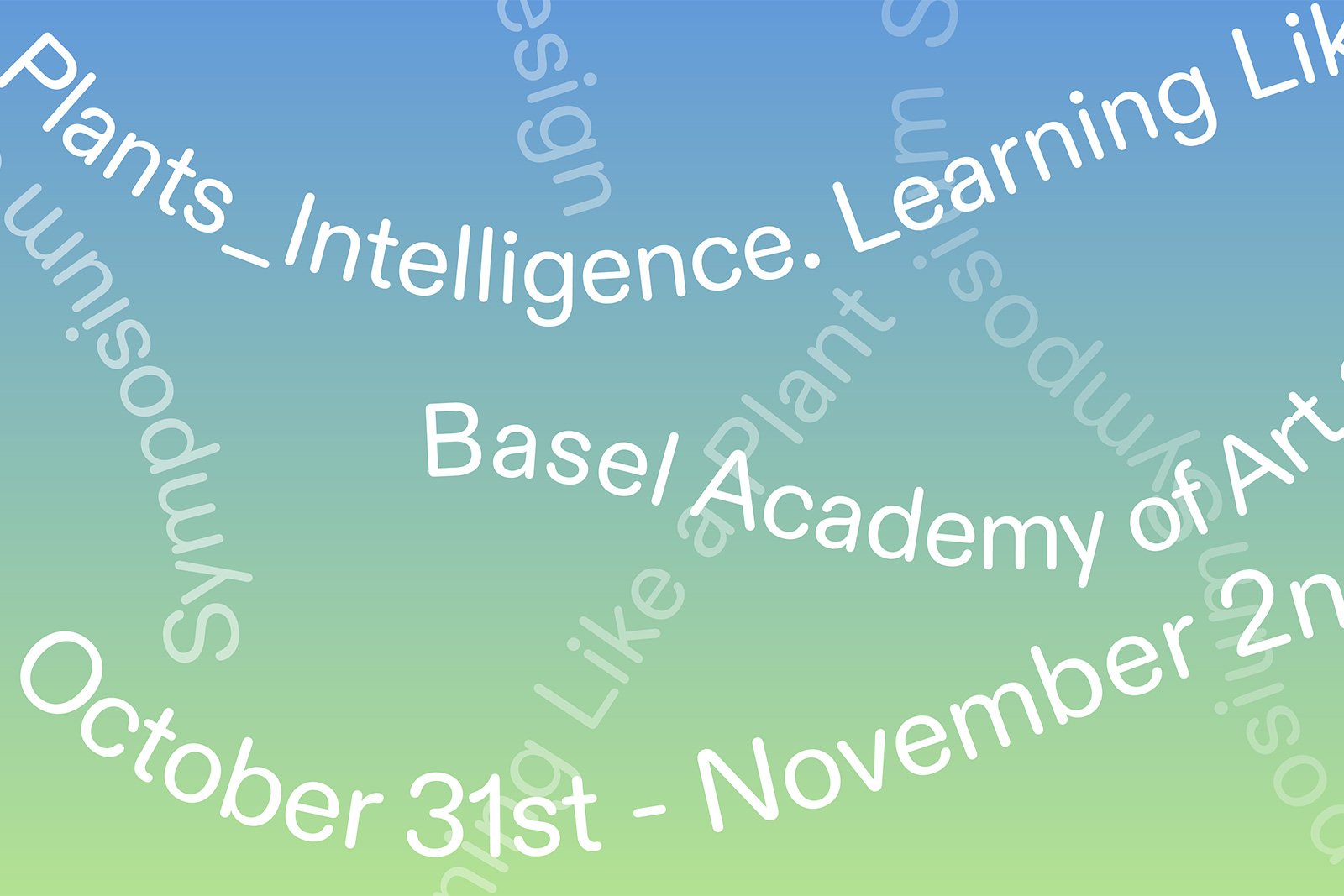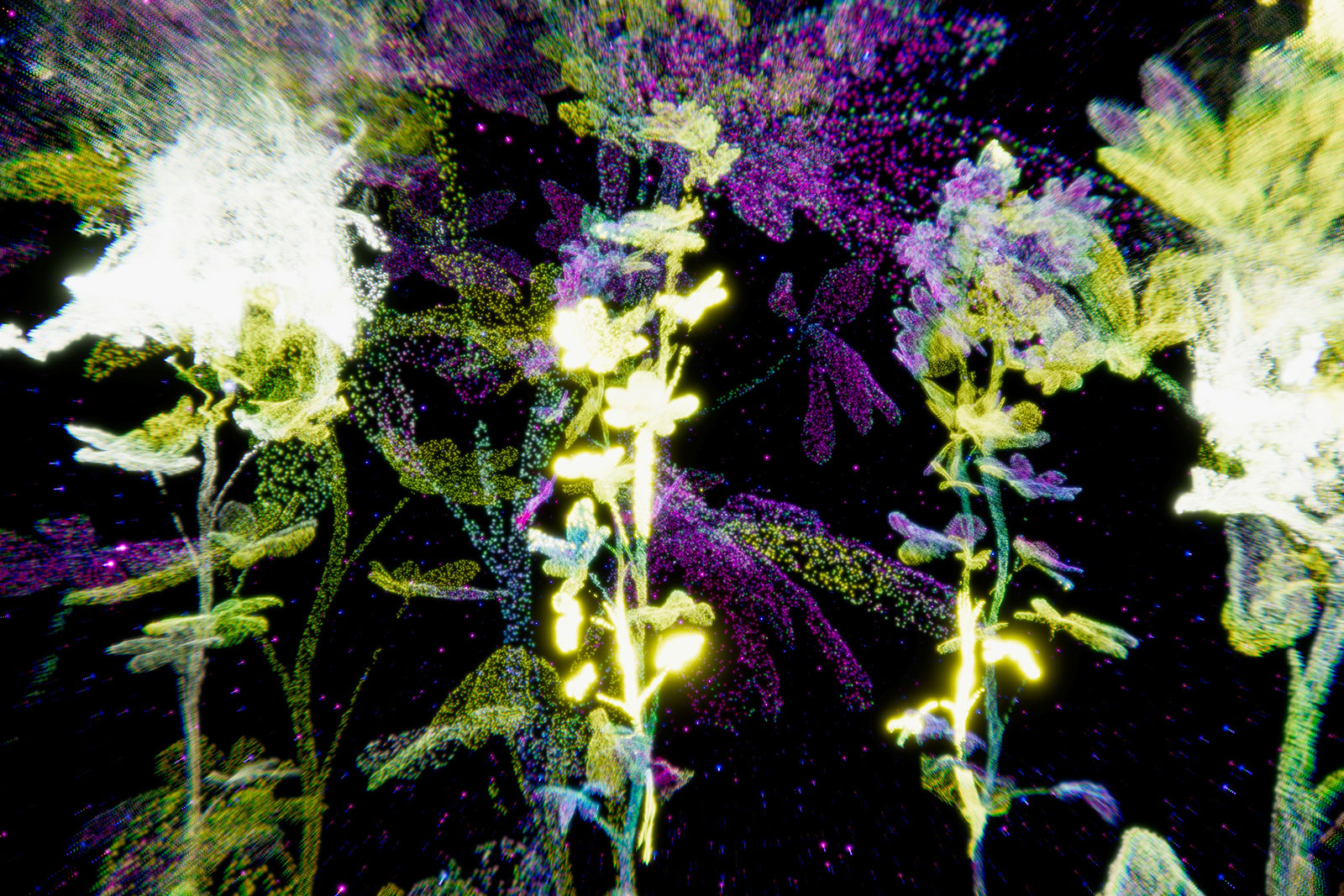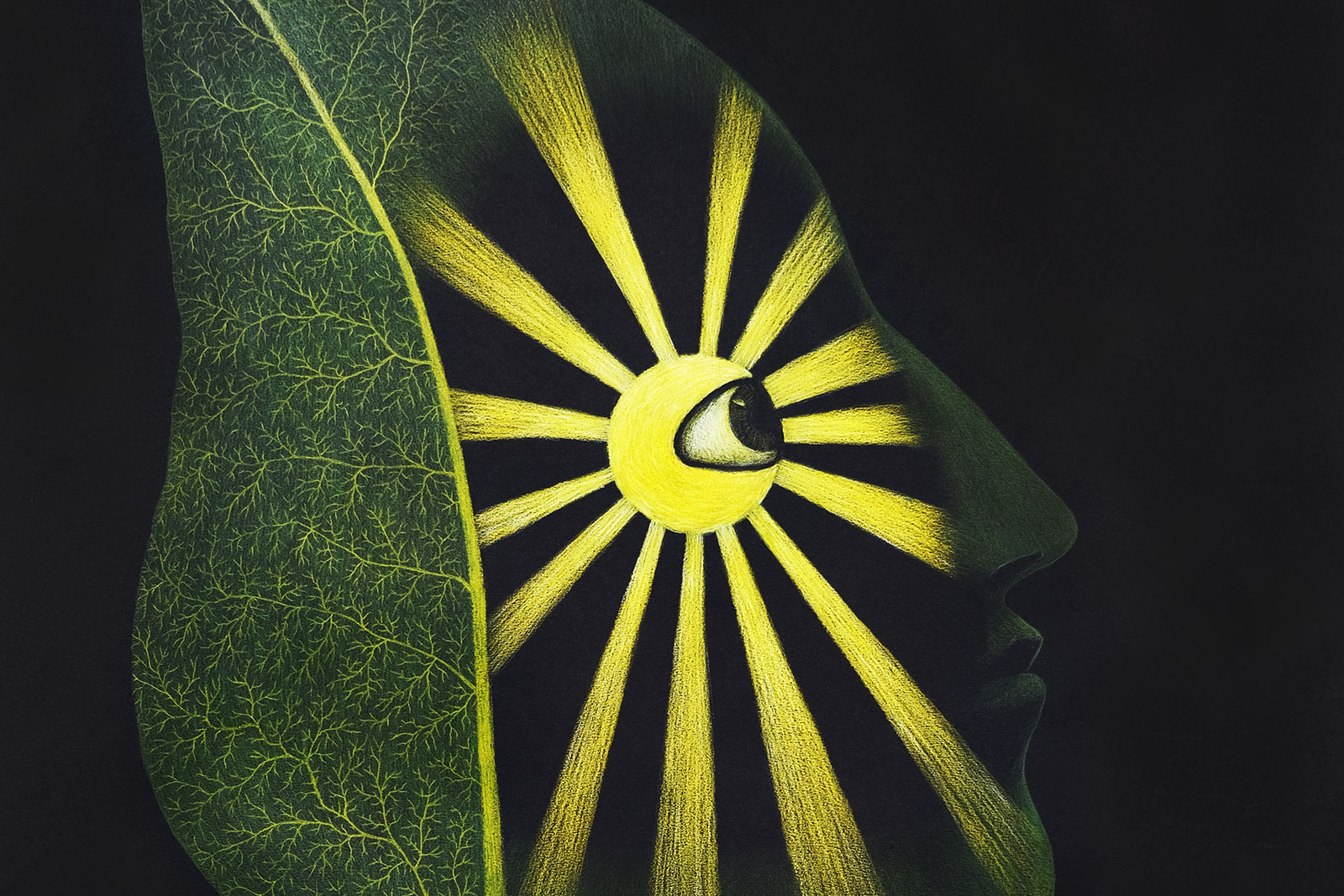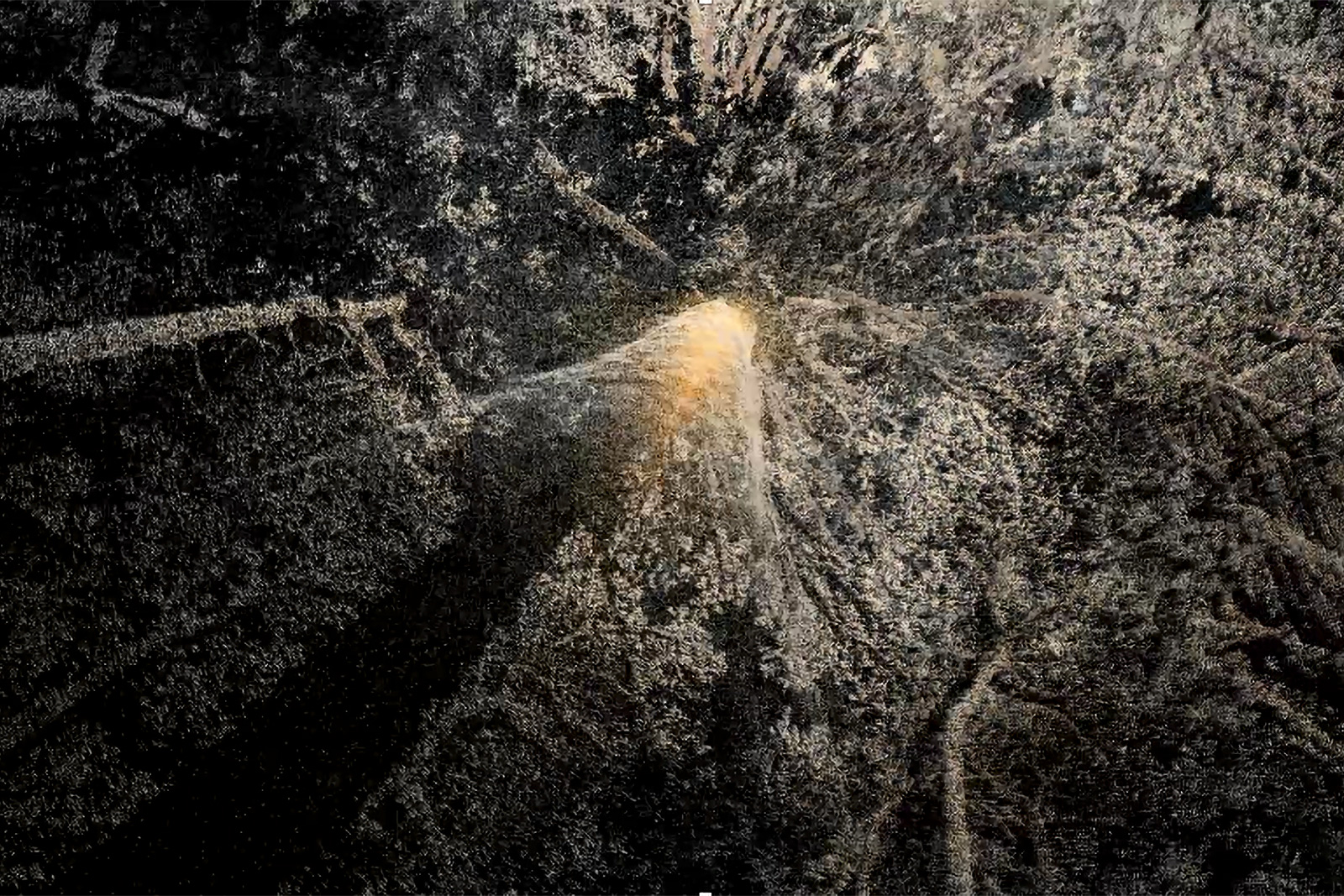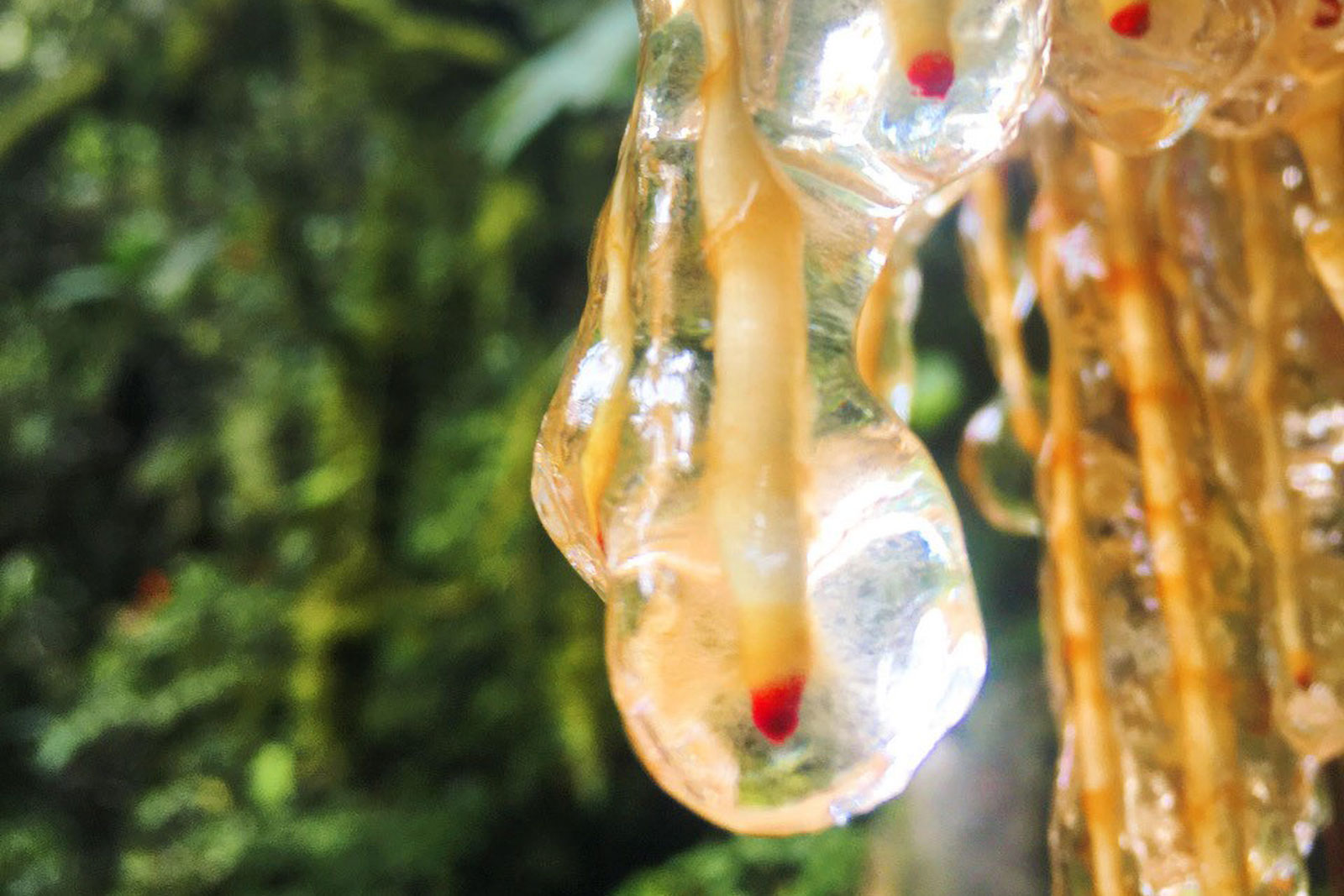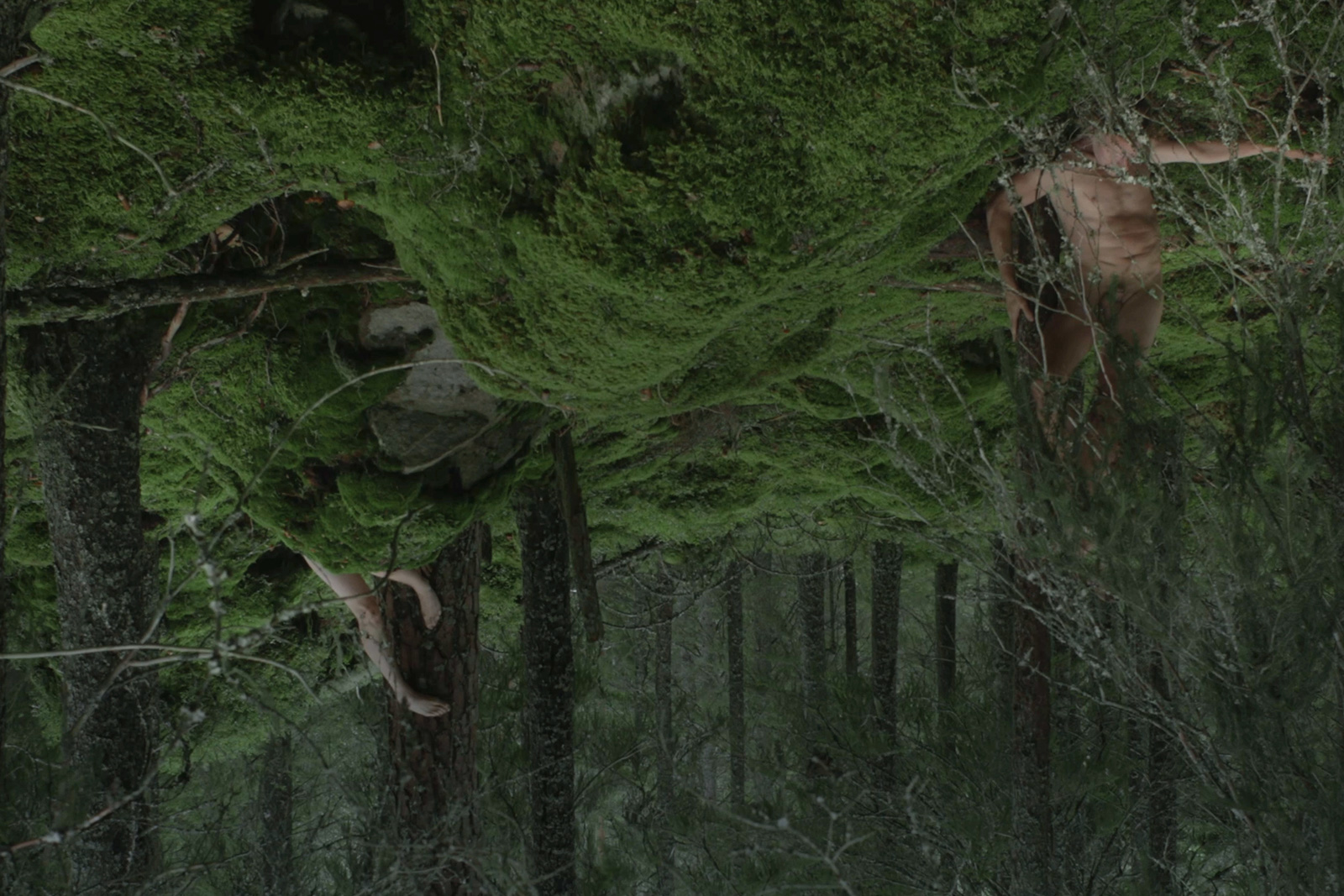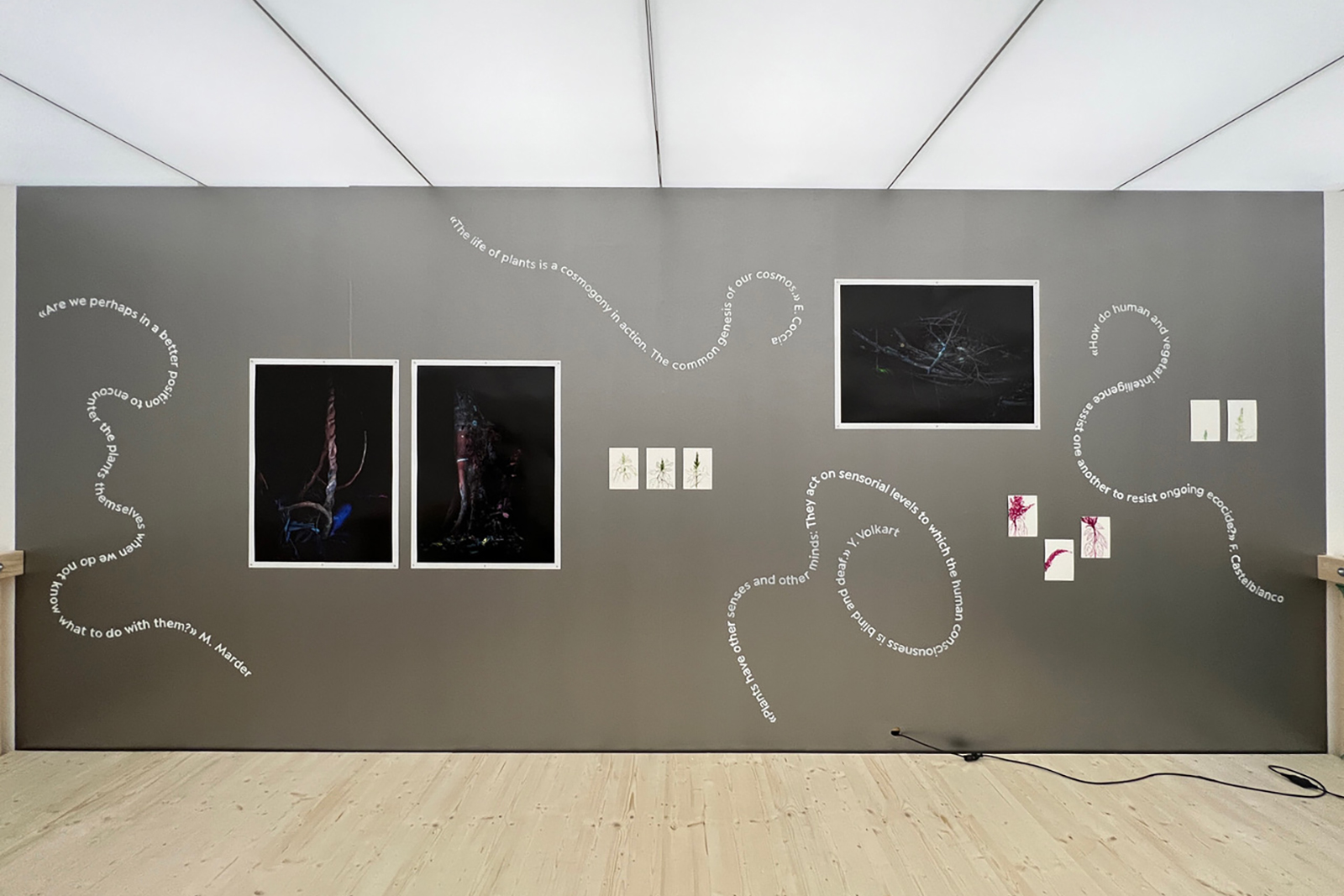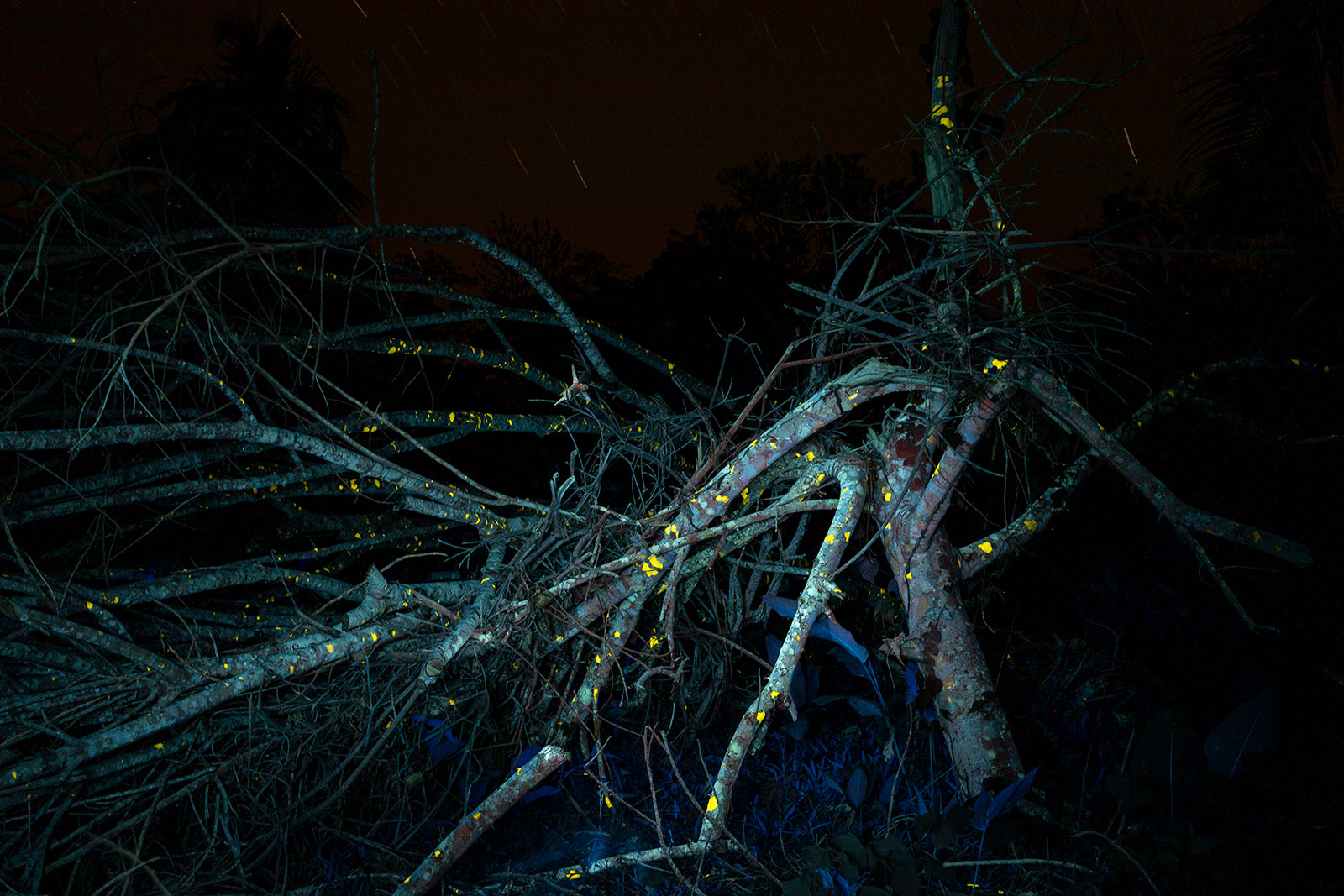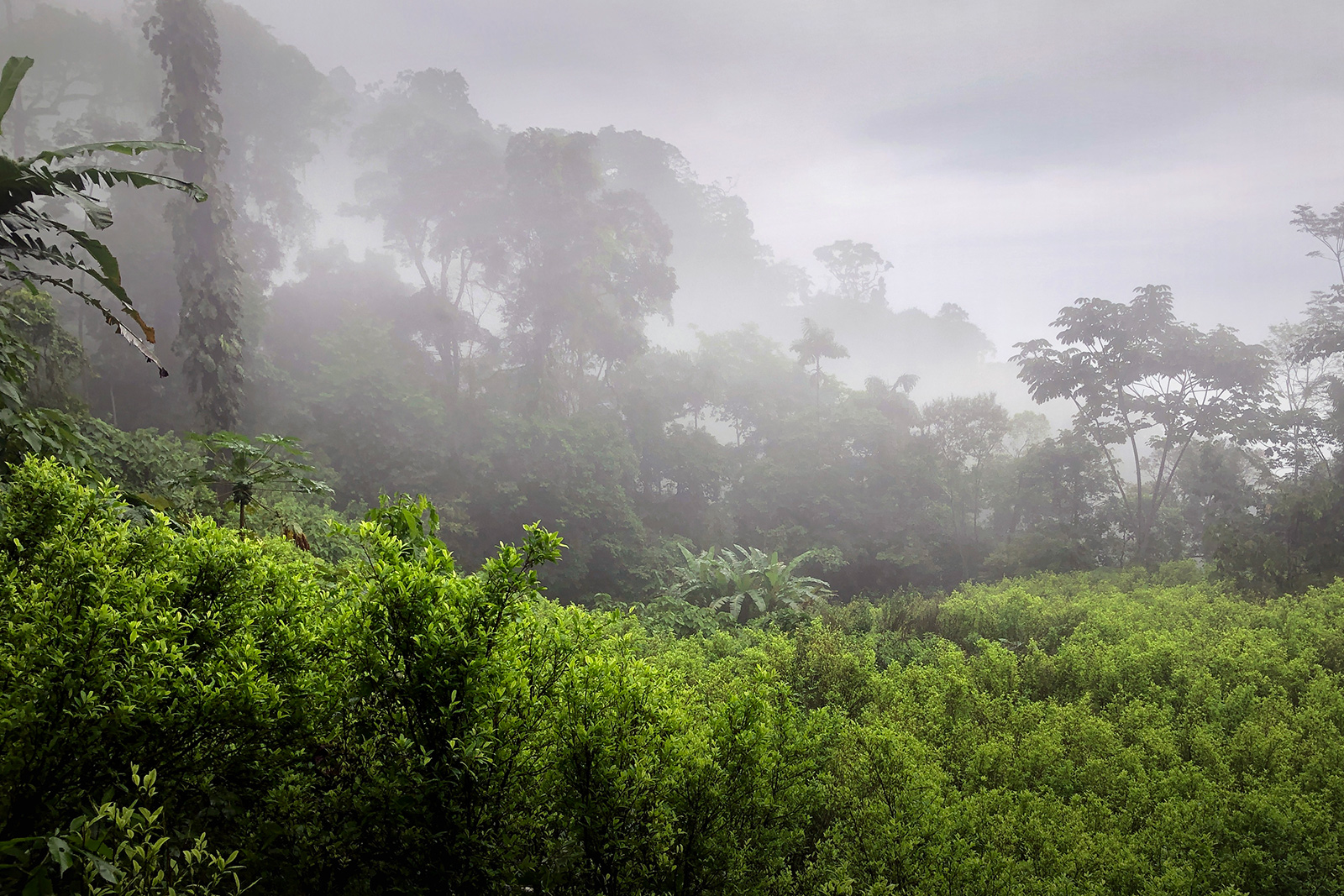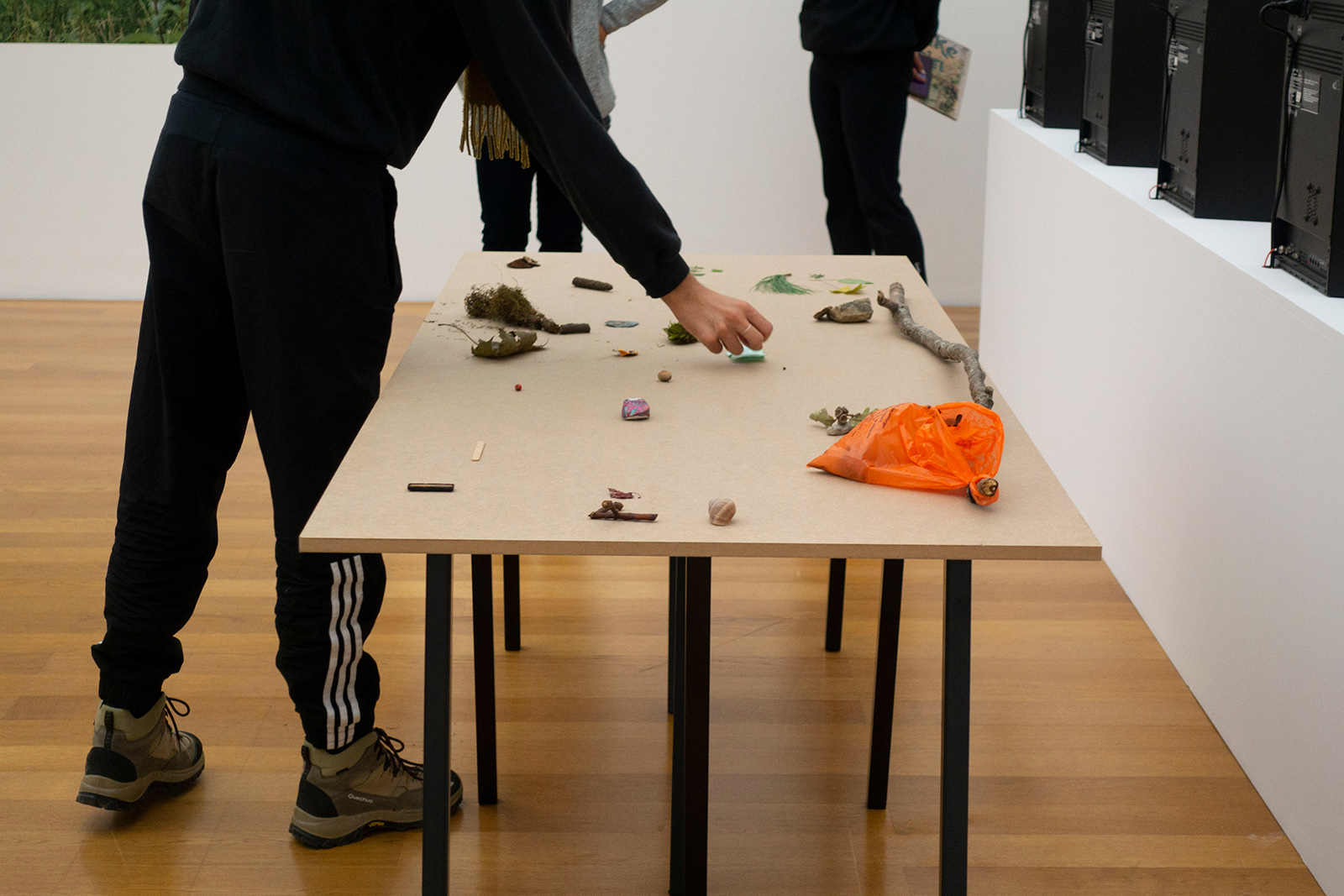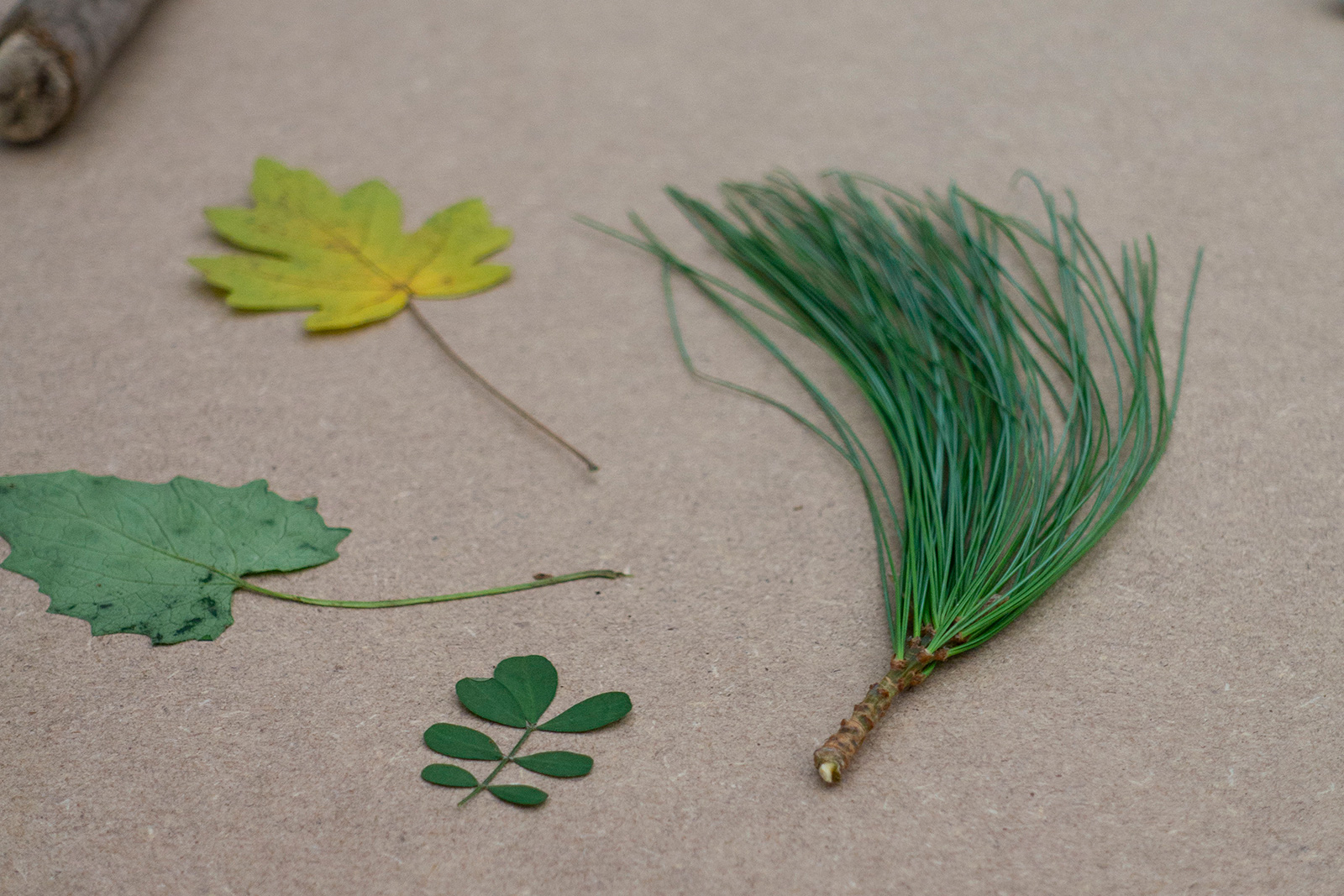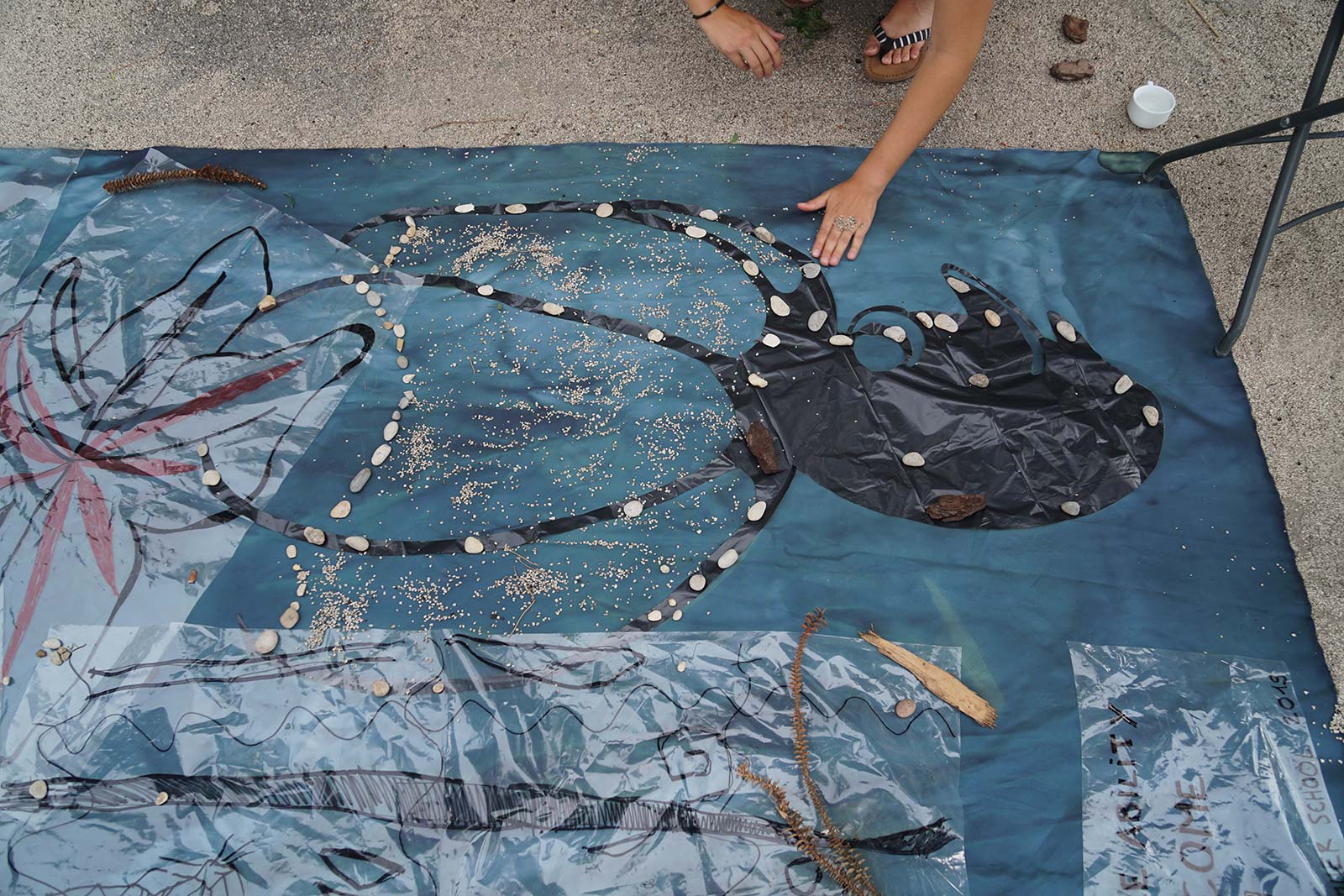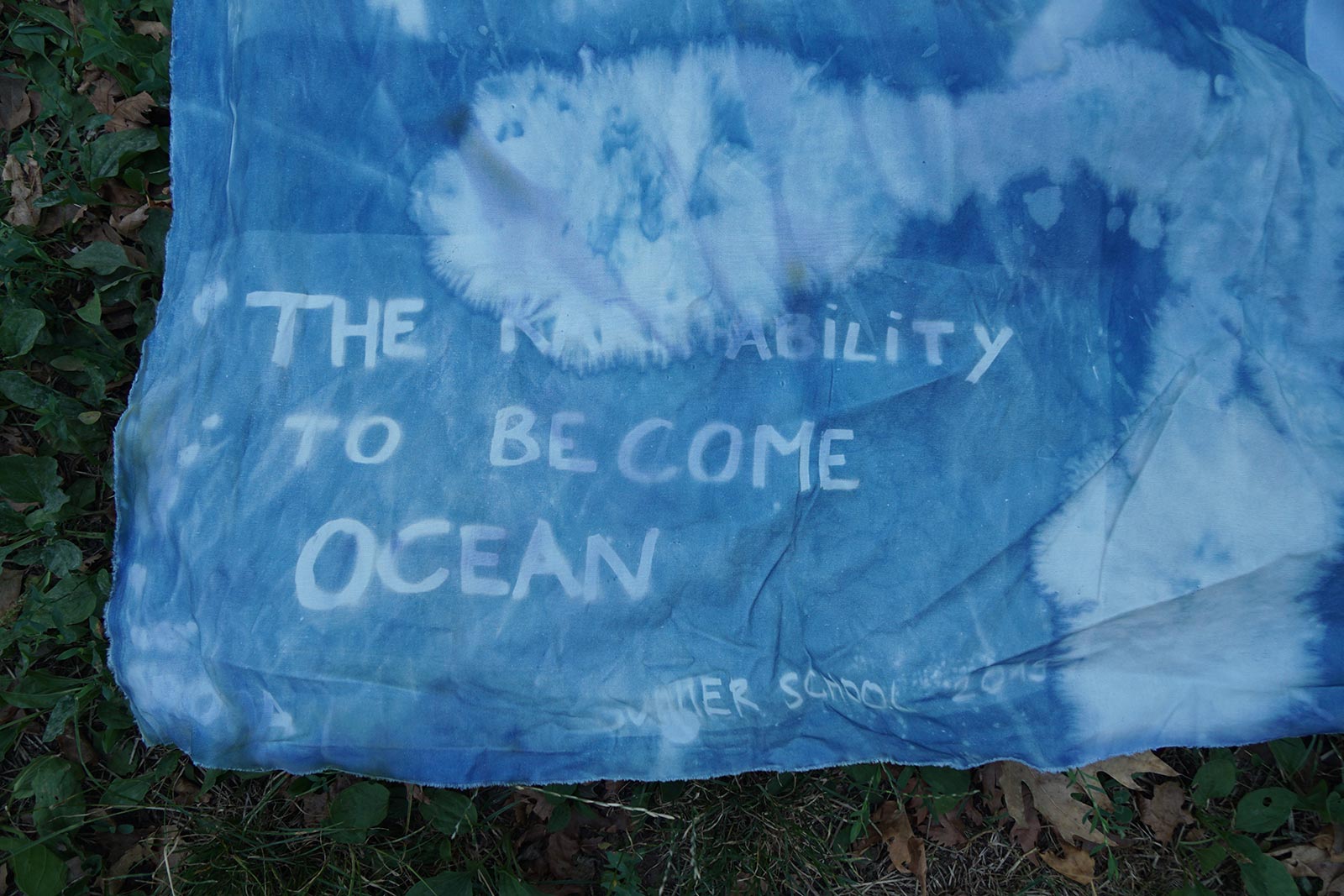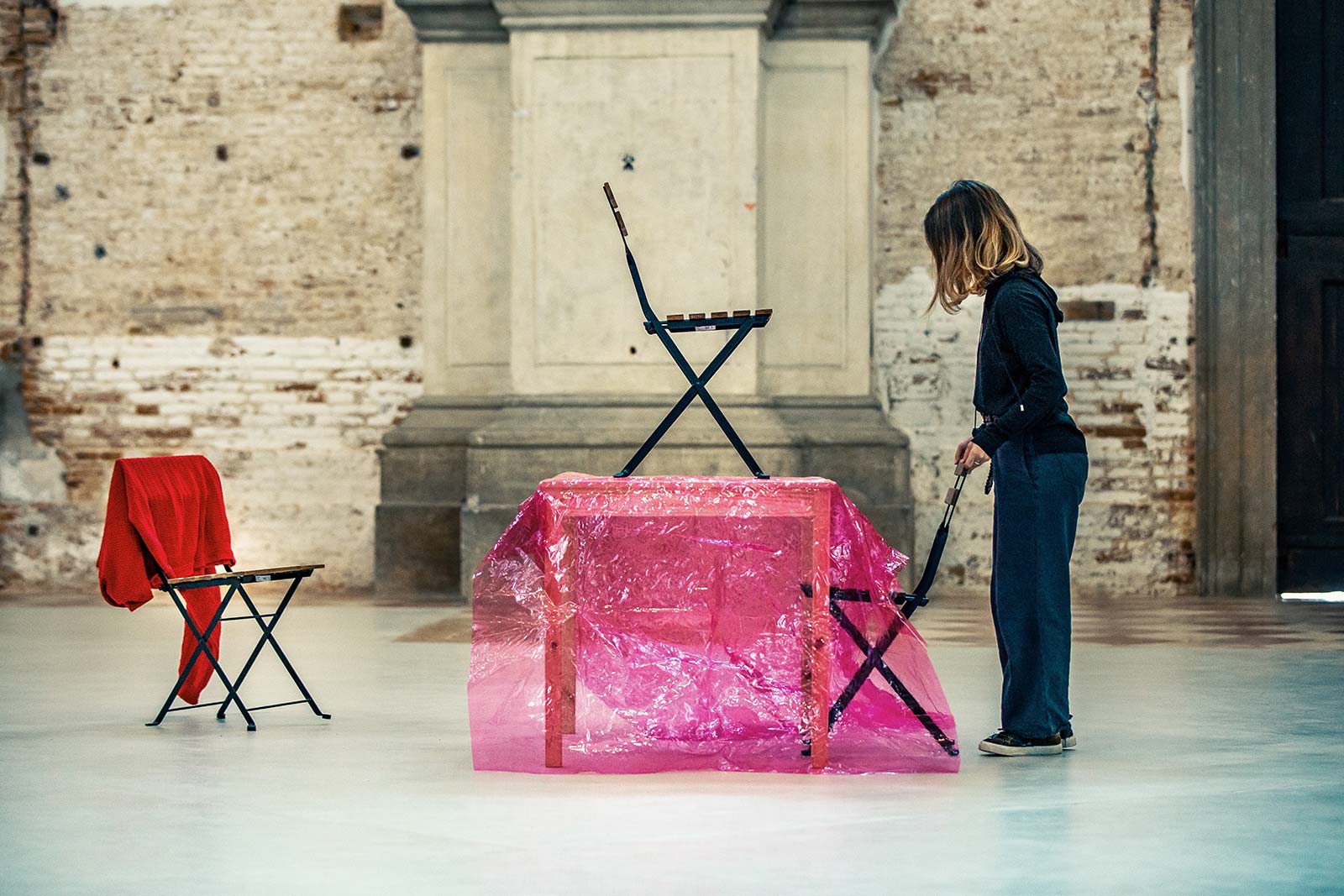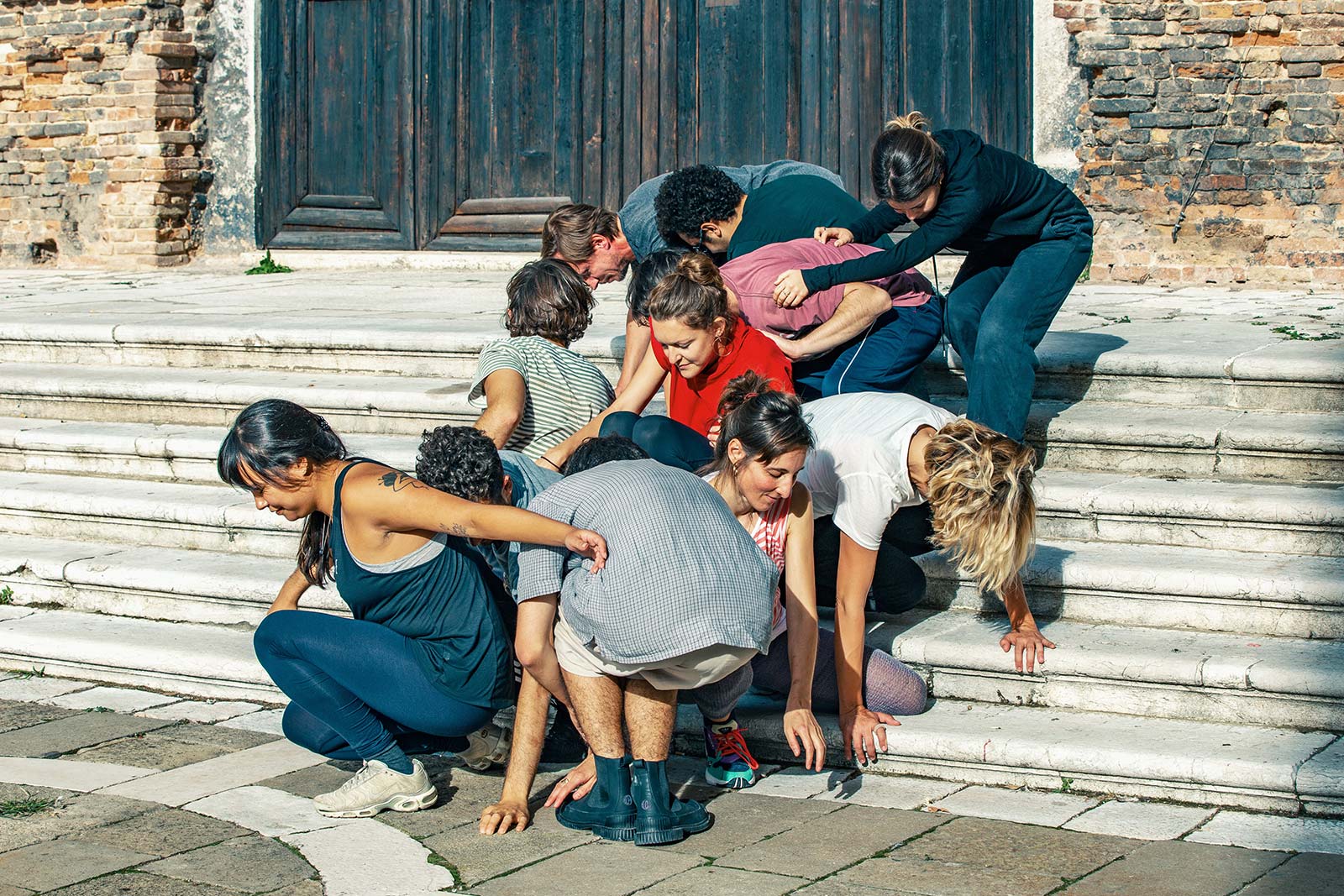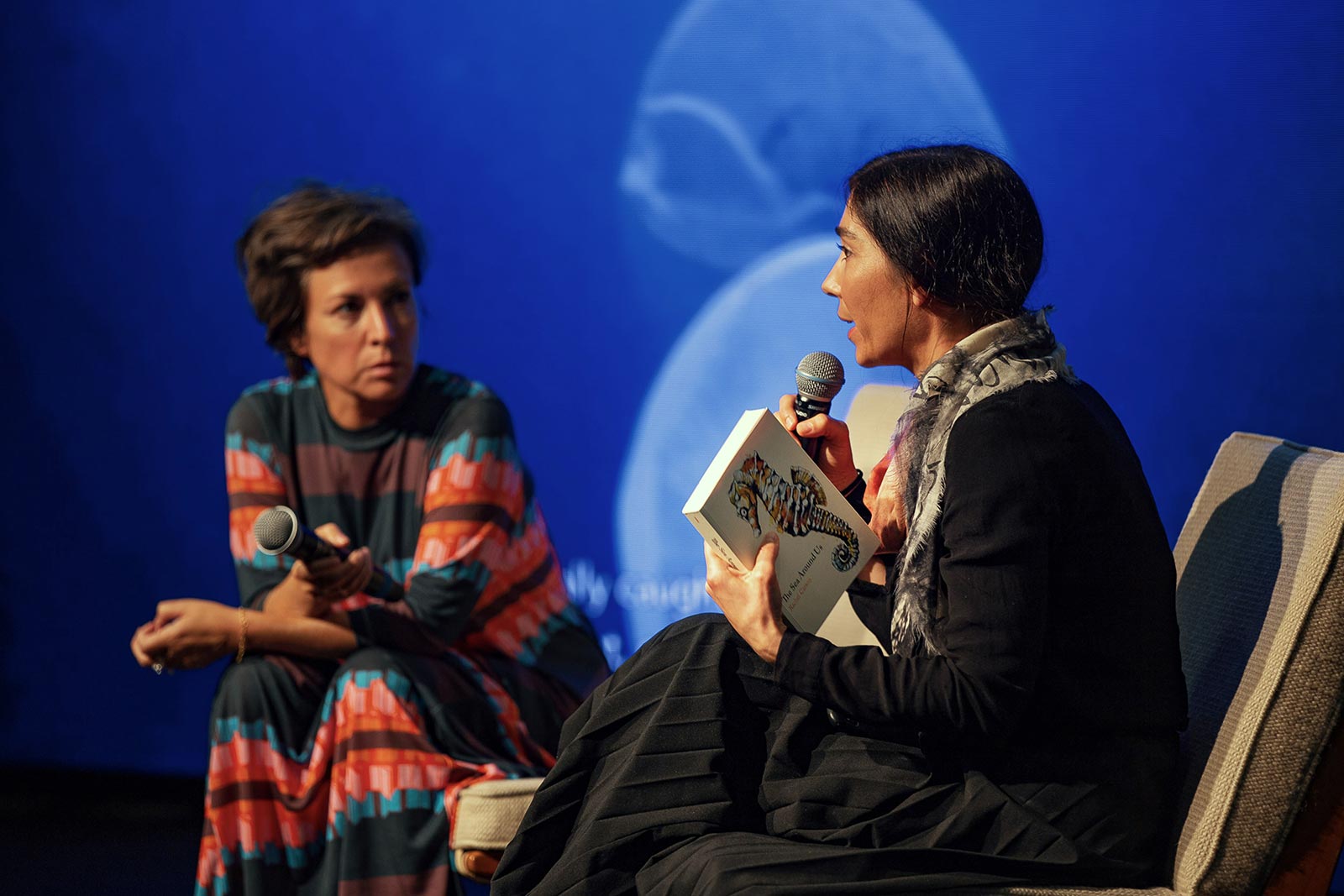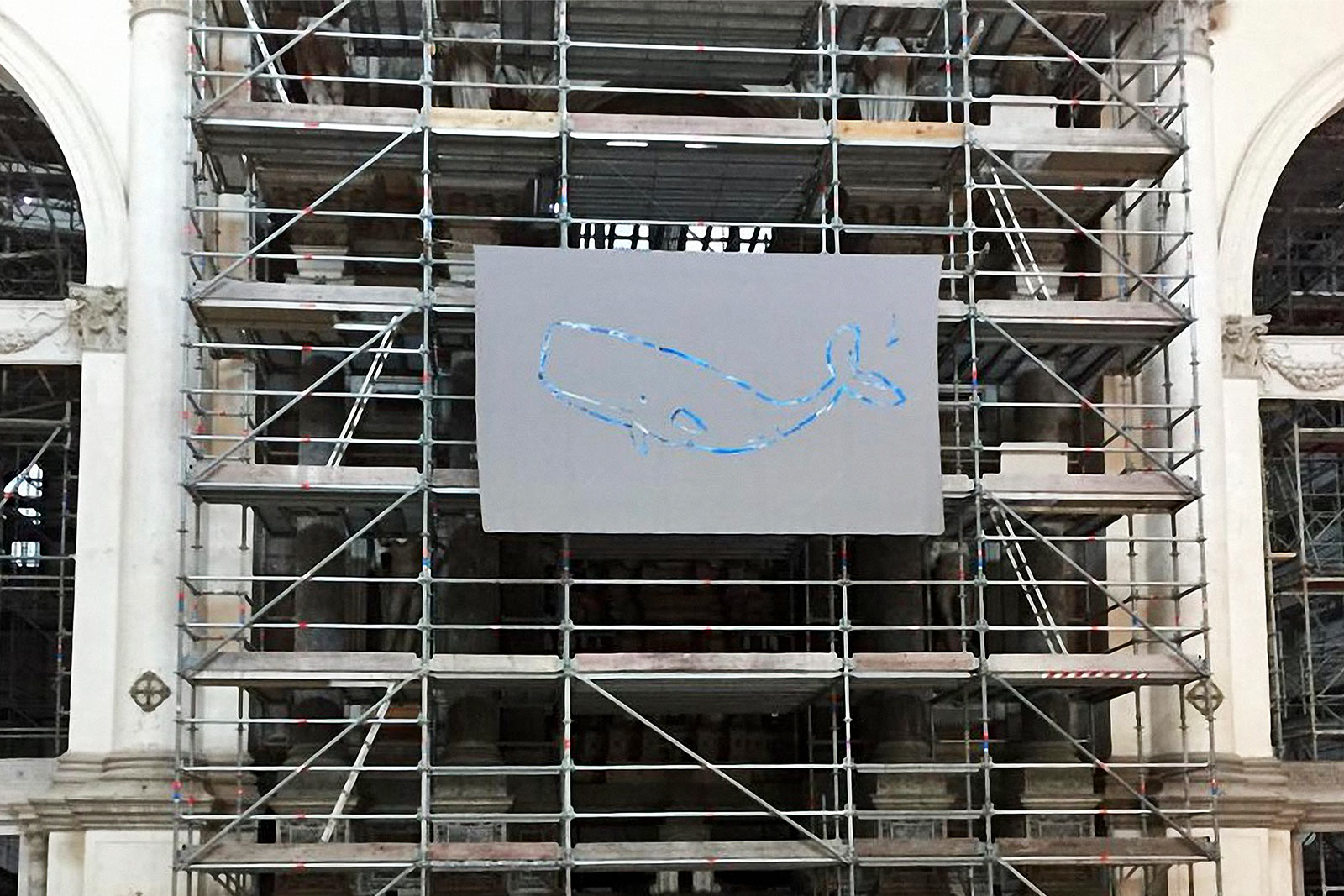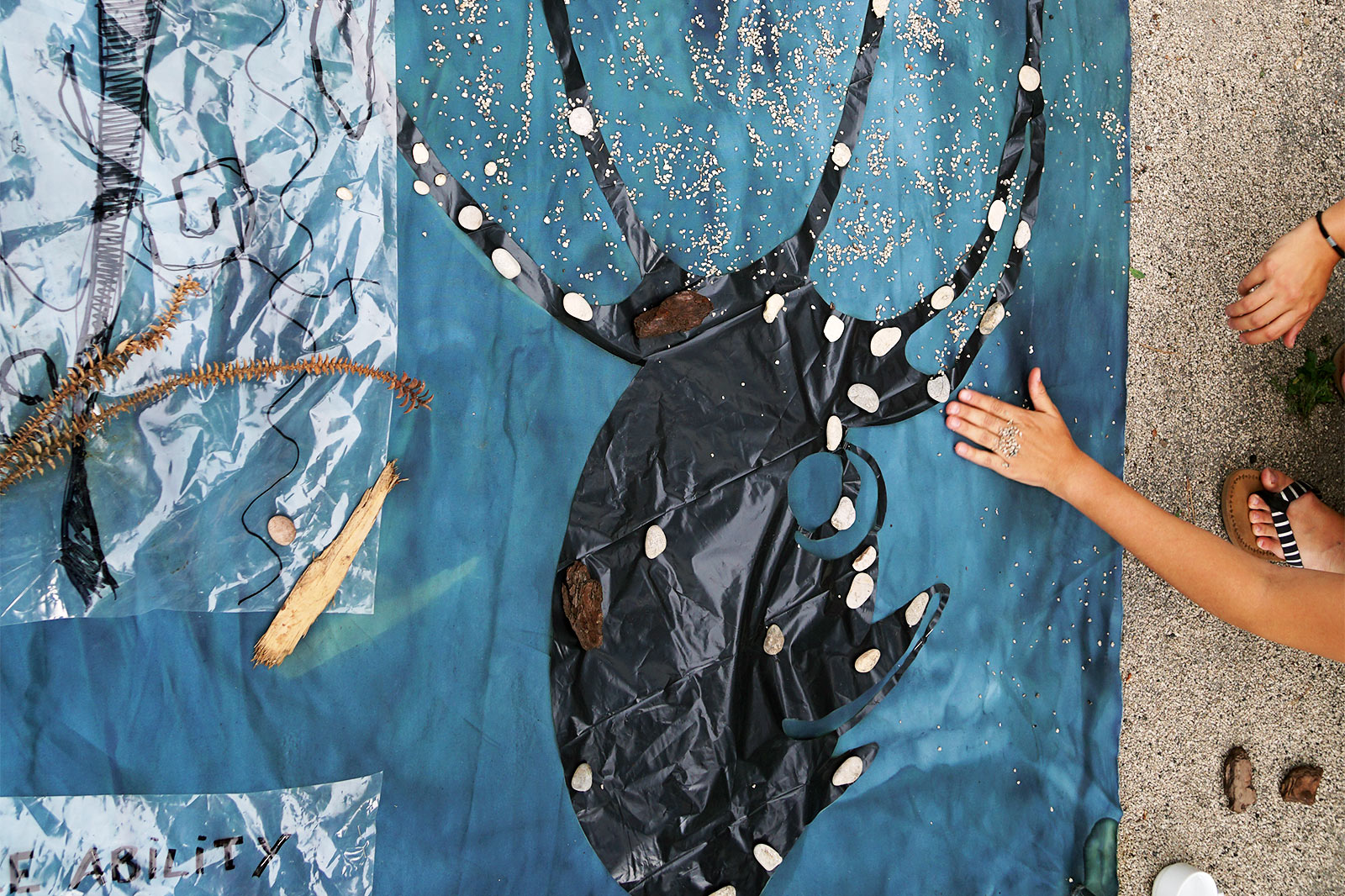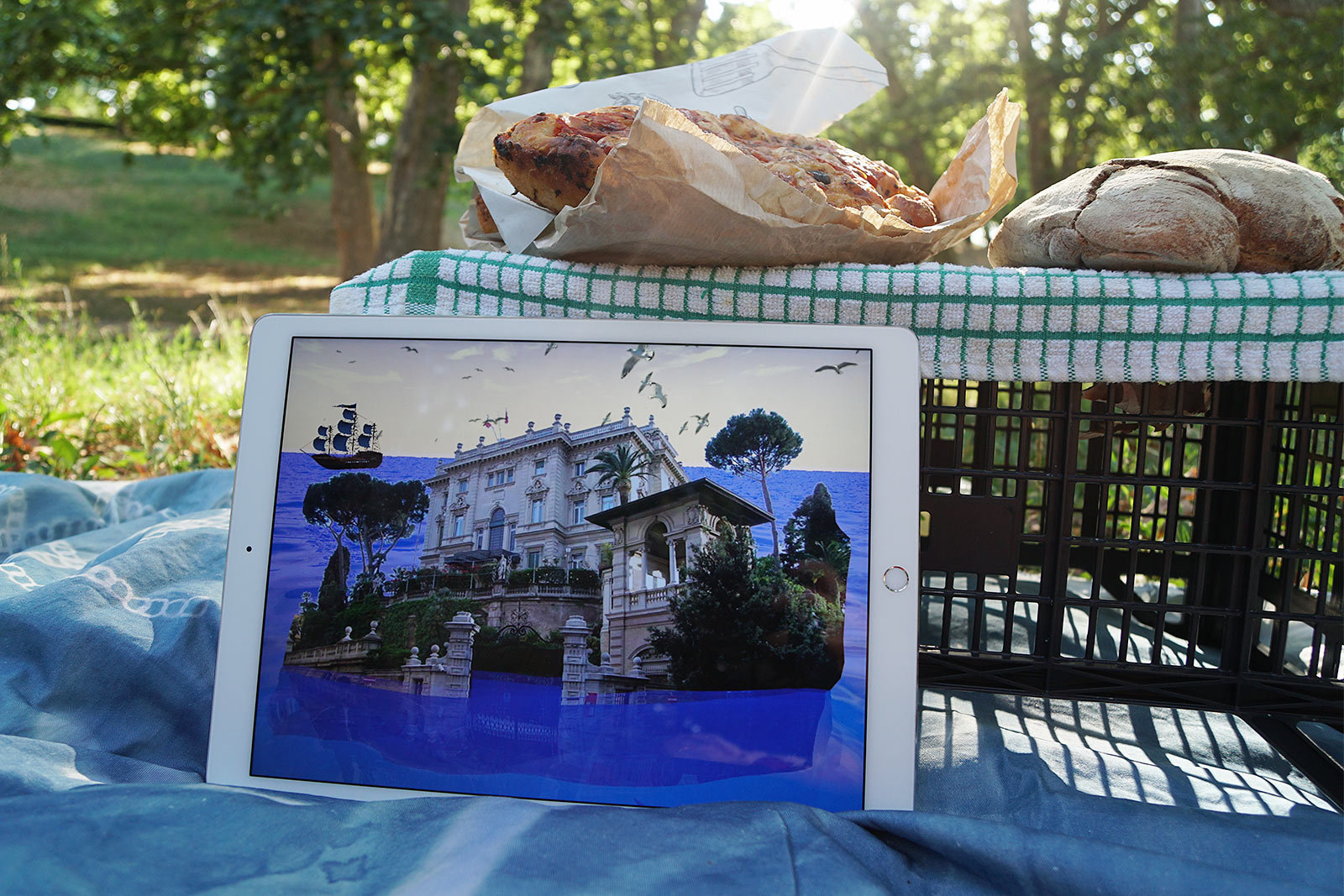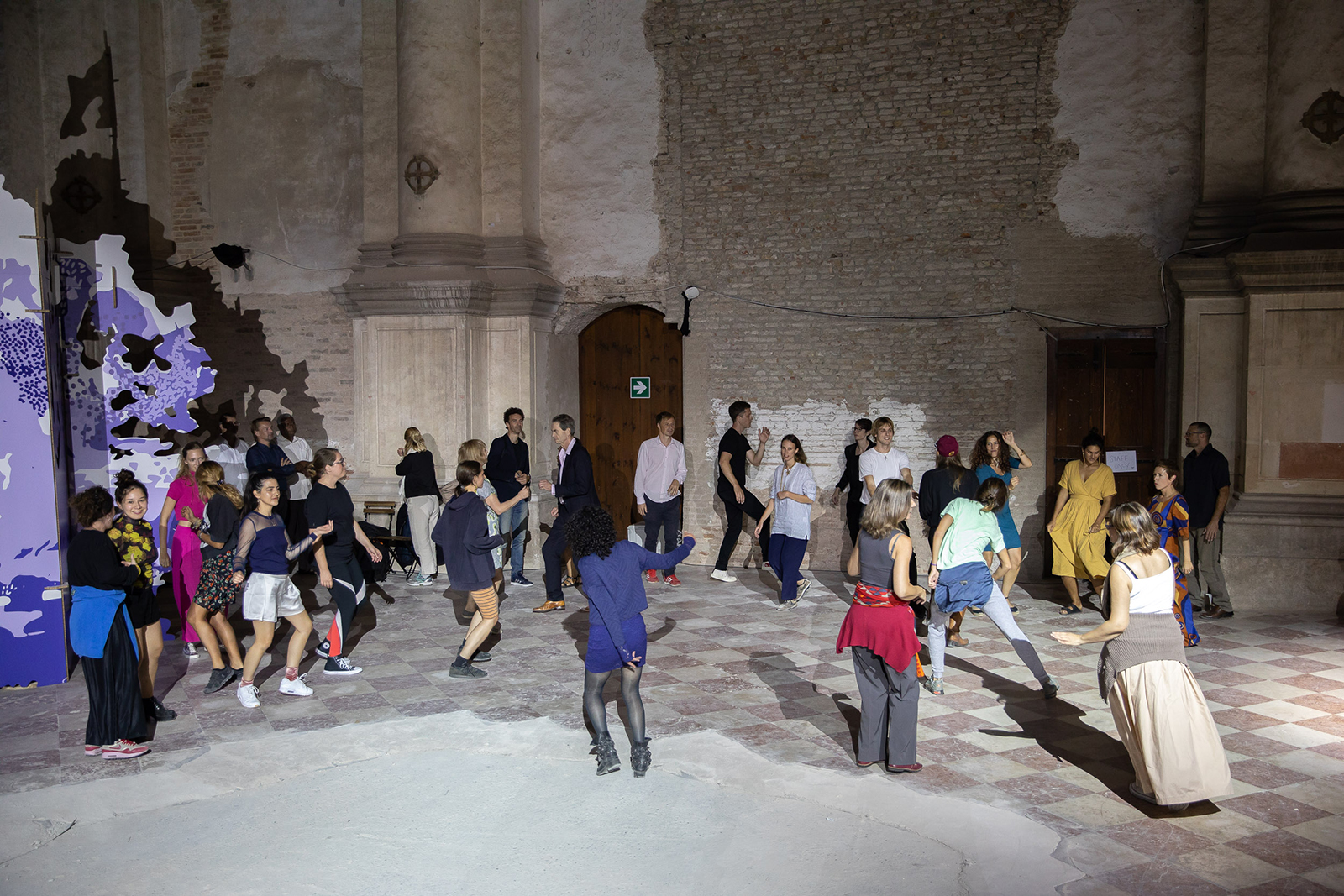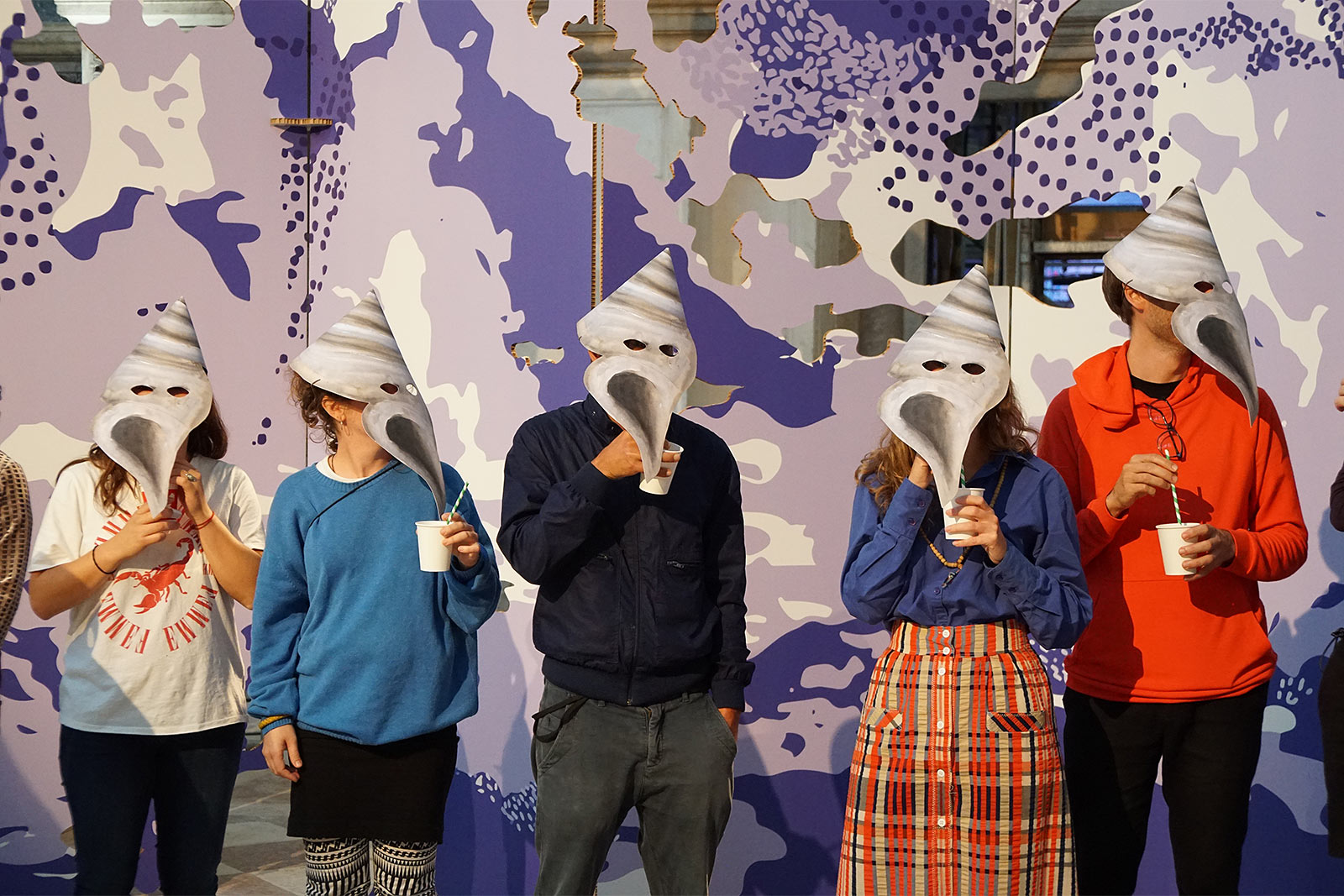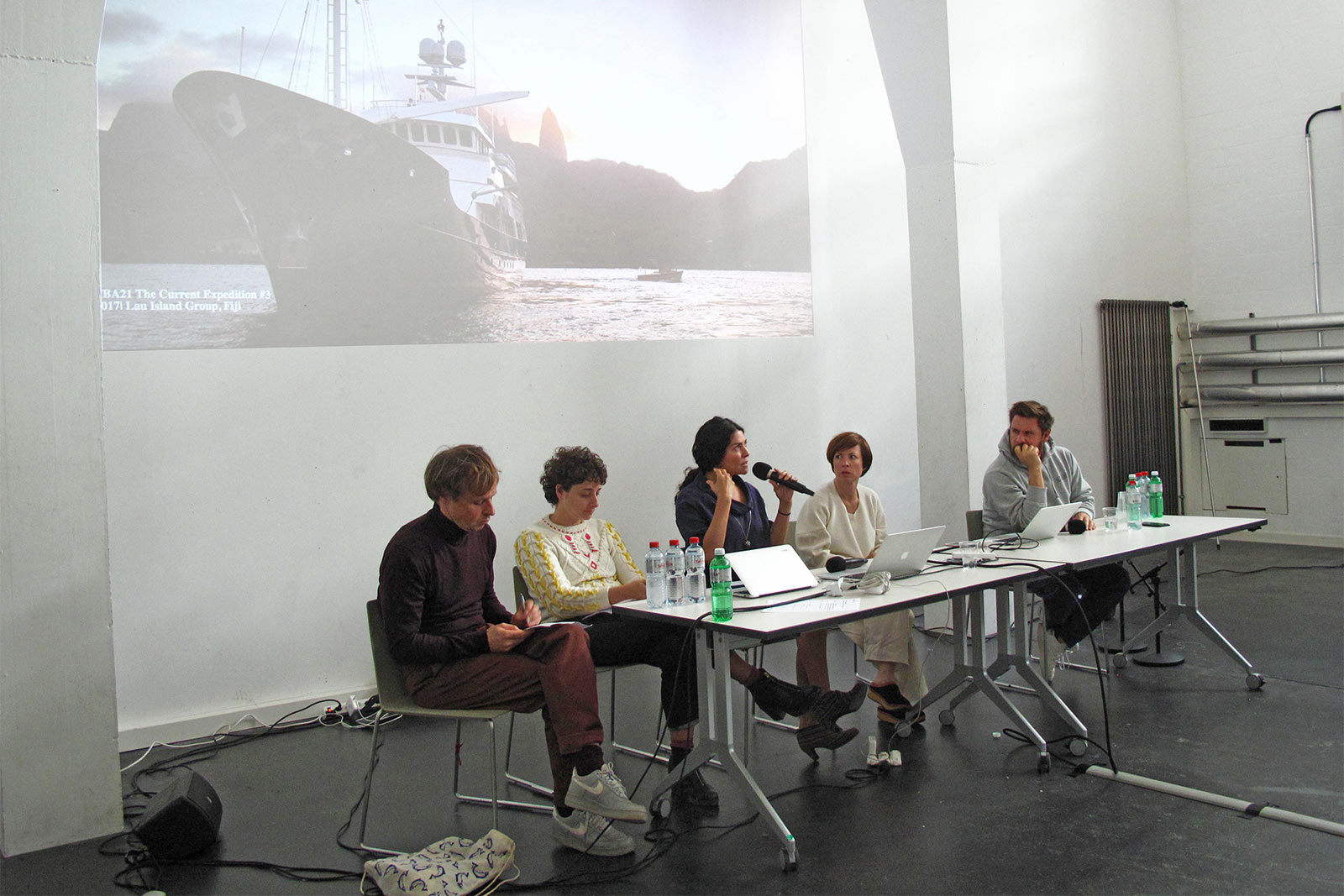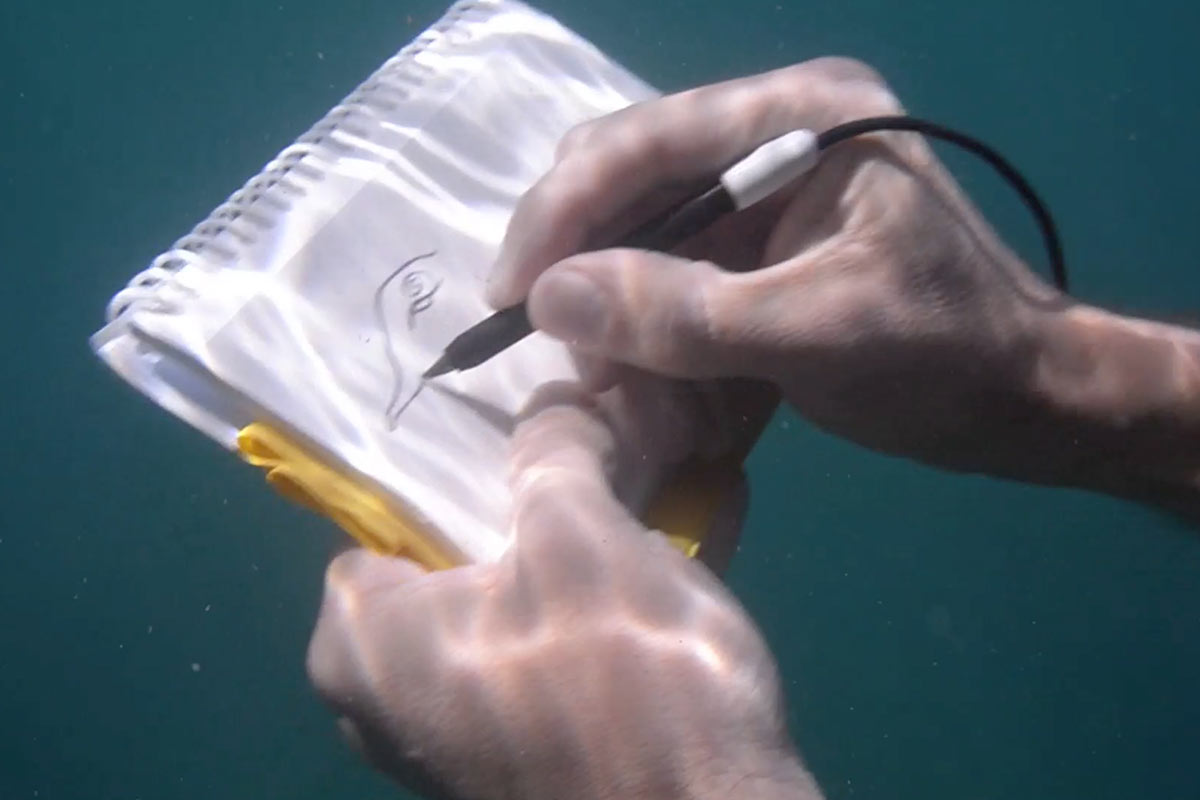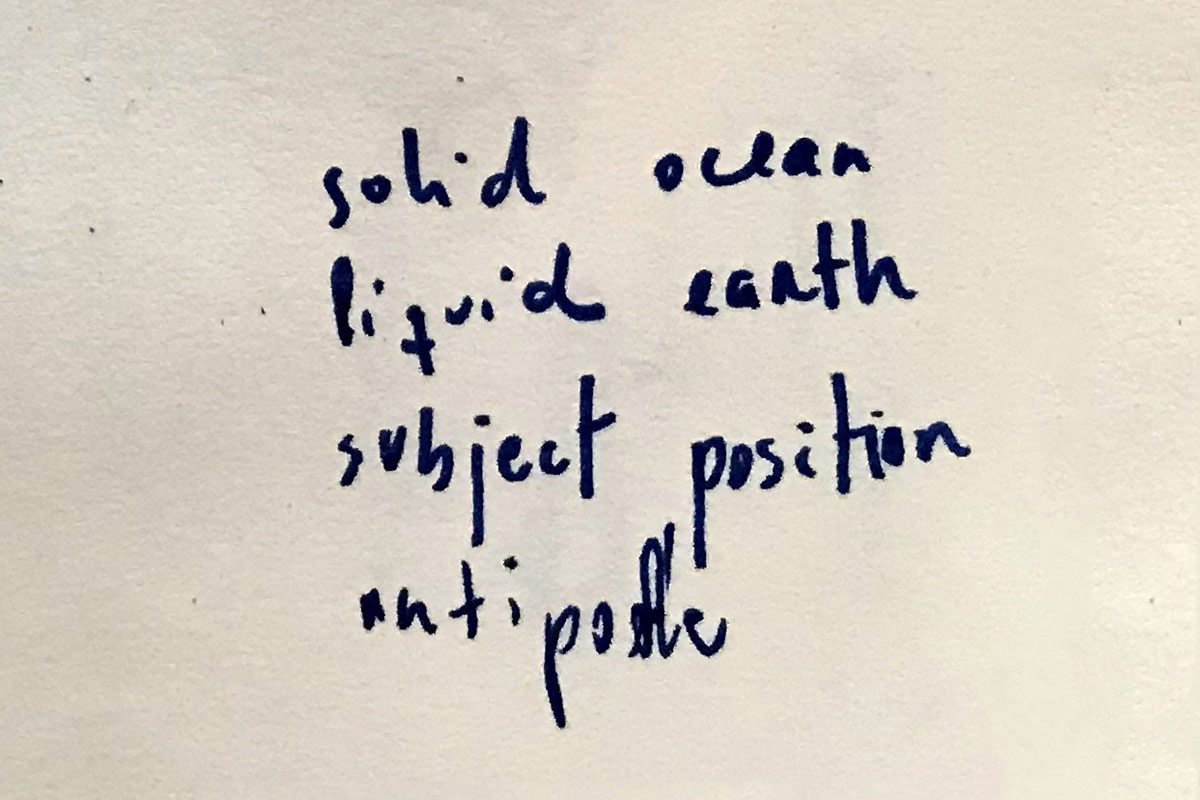Art Is NATURE
Seminars, Public Talks, Symposia, Summer Schools
Following our programs Art Is Science and Art Is Ocean, in spring 2020 we started a new series of seminars, public lectures, and symposiums dedicated to nature. This series continues with an expanding interest in research, experience, and the way artists inquire into nature and the disciplines that traditionally study it. It also pursues our collaboration with TBA21–Academy, a foundation committed to creating opportunities for artists and scientists to develop a new way of thinking about the seas, as well as a space inside education and art to address crucial questions on the future of life.
Plant Intelligence
Symposium
Contributions by Giovanni Aloi, Noelia Billi, Felipe Castelblanco, Kimberly Castro & Rodrigo Cámara-Leret, Ursula Damm, Marcos Filardi, Florianne Koechlin, KOMA Culture Studio, Michael Marder, Julia Mensch, Kathrin Meyer, Jeremy Narby, Marilu Pacheco, Ayênan John Quinchoa Juajibioy, Birgit Schneider, Rasa Smite, Katja Tielbörger, Heraldo Vallejo, Valentina Vetturi, Yvonne Volkart, among others
Organized by the team Plants_Intelligence (Yvonne Volkart, Felipe Castelblanco, Julia Mensch, Rasa Smite)
31 October – 2 November 2025
Auditorium D 1.04, Tower Building, HGK Basel FHNW (31. October – 1. November 2025)
HEK, Basel Münchenstein (2. November 2025)
A collaboration between Plants_Intelligence. Learning Like a Plant and HEK (House of Electronic Arts)
The symposium is open to the public and will be held in English.
The international symposium Plant Intelligence marks the conclusion of the SNSF research project Plants_Intelligence. Learning Like a Plant (2022 – 2025). It brings together the artistic team of the project (Yvonne Volkart, Felipe Castelblanco, Julia Mensch, and Rasa Smit) with research partners such as Birgit Schneider and Katja Tielbörger, theorists such as Giovanni Aloi, Michael Marder, and Jeremy Narby, as well as activists such as Florianne Koechlin, with a public audience.
Against the backdrop of the current wasting of the world, we must think of other ways—vegetal ways—of worlding: ways that do not consume it, but re/produce it. Co-composing it with plants, we cannot help but think and act with them and learn like them. Also, in the arts. In this symposium, theoretical, artistic, and experimental formats expand the discourse on plant intelligence and address, from an aesthetic and political perspective, how plants can be approached as intentional and cognizant beings.
The research project Plants_Intelligence. Learning Like a Plant with Yvonne Volkart, Felipe Castelblanco, Julia Mensch, Rasa Smite) is funded by the SNSF and hosted by the Institute Art Gender Nature HGK Basel FHNW.
RIXC Art Science Festival
Plants Intelligence
Uģis Albiņš, Ursula Biemann, Felipe Castelblanco, Karine Bonneval, Gints Gabrāns, Arnis Rītups, Nicholas Kahn & Richard Selesnick, Julia Mensch, Marc Lee, Ayënan Quinchoa Juajibioy, Rasa Smite, Raitis Smits, Zheng Bo
Group exhibition
Curated by Raitis Smits and Yvonne Volkart
Opening 16 October 2025, 6 pm
Exhibition 17 October – 23 November 2025
kim? Contemporary Art Center, Riga
Plants Intelligence
Symposium
16 – 18 October 2025
Symposium Keynote by Yvonne Volkart with Zheng Bo
Friday 17 October 2025, 3 pm
On site and online
Art Academy of Latvia, Riga
As part of
Plants Intelligence
RIXC Art Science Festival 2025
Curated by Rasa Smite and Raitis Smits
16 – 18 October 2025, Riga
Program, participants and registration
festival2025.rixc.org
plants-intelligence.ch
The exhibition and symposium are a collaboration between Plants_Intelligence. Learning Like a Plant and RIXC Art Science Festival.
2025 marks the 25th anniversary of RIXC Art Science Festival in Riga. This year’s edition will include the exhibition opening of Plants Intelligence and a broad program with a symposium and public keynotes by Noelia Billi, Jana Kukaine, and Yvonne Volkart, principal investigator of the SNSF-funded research project Plants_Intelligence. Learning Like a Plant of the HGK Basel FHWN, and co-curator of RIXC’s anniversary festival exhibition. The exhibition is conceptually and thematically developed in collaboration with Plants_Intelligence. Learning Like a Plant and will feature works by the artists involved in the research project: Felipe Castelblanco, Julia Mensch, Rasa Smite (with Raitis Smits). It will be complemented by other works exploring how underestimated vegetal processes can be aesthetically experienced, generating new knowledge about plants through the concept of intelligence, and will also include results of the collaboration with numerous partners, establishing South-North and East-West exchanges of vegetal mutual learning.
The symposium will feature presentations and discussion panels with the artists from Plants_Intelligence, alongside a diverse lineup of international contributors from Europe, the Nordic countries and Canada to South America and Asia who bring fresh global perspectives to the dialogue between art, science, and nature.
The research project Plants_Intelligence. Learning Like a Plant with Yvonne Volkart, Felipe Castelblanco, Julia Mensch, Rasa Smite) is funded by the SNSF and hosted by the Institute Art Gender Nature HGK Basel FHNW.
Plants_Intelligence: Towards a Vegetal Aesthetics
Insert #7
Edited by Yvonne Volkart
Contributions by Giovanni Aloi and Yvonne Volkart; Noelia Billi; Felipe Castelblanco, Ayênan Johnquinchoa Juajibioy and Nataliauribe Macías; Ursula Damm and Michaela Ott; Matthew Fuller; Julia Mensch; Cate Sandilands; Rasa Smite
A collaboration between Plants_Intelligence. Learning Like a Plant and FSP Cultural Analysis in the Arts/DKV ZHdK
Launch 28 August 2025, 6 pm
Palm House, Old Botanical Garden of the University of Zurich
Open Access
Plants_Intelligence: Towards a Vegetal Aesthetics
→ insert.art
The seventh issue of the open access publication platform INSERT, entitled Plants_Intelligence: Towards a Vegetal Aesthetics, is edited by Yvonne Volkart. It includes contributions by numerous artists and authors who are looking for adequate artistic representations of plant life: Giovanni Aloi and Yvonne Volkart; Noelia Billi; Felipe Castelblanco, Ayênan Johnquinchoa Juajibioy and Nataliauribe Macías; Ursula Damm and Michaela Ott; Matthew Fuller; Julia Mensch; Cate Sandilands; and Rasa Smite.
The research project Plants_Intelligence. Learning Like a Plant with Yvonne Volkart, Felipe Castelblanco, Julia Mensch, Rasa Smite) is funded by the SNSF and hosted by the Institute Art Gender Nature HGK Basel FHNW.
Plants_Intelligence
Curated by Yvonne Volkart and Anja Casser
Plant Talks with artists and curators
Thursday 10 July 2025, 5 pm
Opening Thursday 10 July 2025, 7 pm
Exhibition 11 Juli – 23 November 2025
A collaboration of Plants_Intelligence. Learning Like a Plant and Badischer Kunstverein
Badischer Kunstverein, Karlsruhe
plants-intelligence.ch
badischer-kunstverein.de
The artists assembled in the exhibition Plants_Intelligence share a passion for plants and their strategies, and situate them in an overarching context. By demonstrating that plants are active shapers of their modes of existence, we advocate recognition of another, more-than-human way of being. The presentation shows how art plays an important role in this process: already the regular and precise observation and translation of certain plants and their environments via drawing, video and other media is capable of heightening our ecological sensibilities. Beyond this, Plants_Intelligence also seeks to reclaim central aspects of life that have been expropriated by Neoliberalism, among them, attentiveness, growth, flexibility, intelligence or learning, and to render them tangible as fundamental aspects of relational existence.
The research project Plants_Intelligence. Learning Like a Plant with Yvonne Volkart, Felipe Castelblanco, Julia Mensch, Rasa Smite) is funded by the SNSF and hosted by the Institute Art Gender Nature HGK Basel FHNW.
On Clouds and Trees
A conversation with Yvonne Volkart and Lubna Dada
Moderation: Michael Hiltbrunner
A collaboration between Plants_Intelligence. Learning Like a Plant and Rehmann Museum
Sunday 4 May 2025, 3 pm
Rehmann Museum, Laufenburg
Two researchers with different backgrounds, theorist Yvonne Volkart and atmospheric scientist Lubna Dada, discuss the intelligence of plants and how we can communicate with them. How can we tell whether a forest is under stress? What do clouds and aerosols tell us? And how does art deal with this? The conversation suggests that, in parallel to investing in artificial intelligence, we should also improve our understanding of natural intelligence. It is
part of the exhibition Technologien der Zukunft/Technologies of the Future. Vanessa Billy, Brodie Ellis, Paul Schatz at the Rehmann Museum and of the SNSF research project Plants_Intelligence. Learning Like a Plant.
Yvonne Volkart, Head of Research at the Institute Art Gender Nature HGK Basel FHNW, initiated the SNSF research project Plants_Intelligence. Learning Like a Plant on the intelligence of plants. She is the author of Technologies of Care. From Sensing Technologies to an Aesthetics of Attention in a More-than-Human World (Zurich 2023).
Following studies in Lebanon and Finland, atmospheric scientist Lubna Dada is conducting research at the Paul Scherrer Institute in Villigen. She explores the formation of clouds and the understanding of bioaerosols—such as pollen or tiny particles that form from plant scents in the air—and sees them as one of the ways how plants communicate.
Unter Pflanzen
A collaboration between Plants_Intelligence. Learning Like a Plant and Museum Sinclair-Haus
Curated by Kathrin Meyer and Yvonne Volkart, with Moritz Ohlig and Sophie Olivotto
Opening Sunday 16 March 2025, 11 am
Exhibition 16 March – 17 August 2025
Museum Sinclair-Haus, Bad Homburg v.d. Höhe
The exhibition and the magazine Unter Pflanzen (English Among Plants) is a collaboration between the Museum Sinclair-Haus, Bad Homburg and the SNSF research project Plants_Intelligence. Learning Like a Plant, lead by Yvonne Volkart, of the Institute Art Gender Nature HGK Basel FHNW. Unter Pflanzen, curated by Kathrin Meyer and Yvonne Volkart with Moritz Ohlig and Sophie Olivotto, marks the conclusion of the SNSF research project Plants_Intelligence. Learning Like a Plant.
We are constantly moving “among plants,” yet we usually pass them by carelessly. The exhibition invites us to get to know our green companions in a new way—as active, sentient, acting, in short, intelligent beings. Felipe Castelblanco, Julia Mensch, and Rasa Smite have been dedicating themselves to the artistic research into plant intelligence since 2022. Their works, alongside those of Ayënan Quinchoa Juajibioy and Ursula Damm, were created as part of the SNSF research project Plants_Intelligence. Learning Like a Plant and will be presented for the first time in the exhibition Unter Pflanzen together with contributions of additional international artists. The works encourage us to perceive plants with all our senses and to be fascinated by their respective shapes, their abilities and their ways of populating the world.
For Plant Intelligence
Panel: Yvonne Volkart and team Plants_Intelligence
(Felipe Castelblanco, Julia Mensch, Rasa Smite)
Keynote by Paco Calvo
Input by Ayênan Quinchoa Juajibioy
Friday 18 October 2024, 6 pm
Auditorium D 1.04, Tower Building, HGK Basel FHNW
In English
Admission free and open for everyone
As part of Mesh Festival
16 – 20 October 2024
meshfestival.ch
The current hype around AI – which is basically just resource-intensive computing based on data mining and brute force – makes us forget that there exist completely different, much more “efficient” and pleasurable forms of intelligence: these are forms that are open to the multiplicity of being on earth, that create relations and playful forms of cross-species alliances. Plants in particular, these disregarded creatures, surprise us with their ingenious capacities to interact with their ecologies. This panel focuses on the question of how plants sense and compute, decide and act. What does that mean? What can humans learn from it? And why is this relevant for art, technology, science, and society?
The panel For Plant Intelligence @ Meshfestival will be accompanied by a workshop of the same name, which will take place on Friday 18 October and Saturday 19 October 2024 at the Institute Art Gender Nature HGK Basel FHNW. Interested people are welcome → registration and additional information
Interspecies Love
Panel with Monica Gagliano, Wanuri Kahiu, Bo Zheng
Curated and moderated by Yvonne Volkart
As part of Kinship In Transformation
Art-Science series
28 May 2024, 4 – 8 pm
Istituto Svizzero, Rome
The narratives of kinship, love and networks of care are deeply rooted in the respective social structures and cultural systems. In the Western world and beyond, the definition and ideas of these concepts are closely tied to a capitalistic and heteronormative social structure that has furthered the maintenance of privileges for some, and the persistence of inequalities for others. The event Kinship In Transformation invites artists and researchers, coming from different disciplinary backgrounds and artistic practices, to share their reflections and work, opening to alternative narratives about kinship and love that can nourish fresh perspectives.
How can we think about kinship in new terms and acknowledge its myriad possible forms and always changing nature? And thinking beyond human relations, what can the realm of interspecies relations tell us?
The panel Interspecies Love is part of the event Kinship In Transformation. Interspecies Love is a cooperation of Istituto Svizzero and the Institute Art Gender Nature HGK Basel FHNW, supported by the Swiss National Science Foundation SNSF.
Agency of Plants
Symposium
Within the exhibition Parliament of Plants II
With contributions by Ursula Biemann, Roosa Laitinen, Nadja Mazouz, Julia Mensch, Christiane Meyer-Stoll, Uriel Orlow, Linda Schädler, Patrícia Vieira, and Yvonne Volkart, as well as students of the Institute Art Gender Nature HGK Basel FHNW
21 September 2023, 10 am – 8 pm
Kunstmuseum Liechtenstein, Vaduz
kunstmuseum.li
In the current ecological crisis, which is also a social, psychological and political crisis, there is a growing realization that humans must connect and ally with non-human beings in new ways. In particular, plants—those beings long perceived as other, alien, immobile and passive—are gaining new attention. Not only do plants take care of human and non-human animals, traditional agricultural practices and recent botanic research show that plants have a profoundly rich sensorium: they speak, communicate, make decisions, are responsive and adaptive and help shape environmental conditions. In short, plants have agency, they have an “extended cognition” (as plant theorist Michael Marder has noted) and thus can be defined as intelligent and as “active” subjects.
What does this mean exactly? What does it mean that plants “have rights”? And what impact does this have in “our” dealings with, or rather in our coexistence with, plants?
The symposium Agency of Plants takes up these questions and examines them through various presentations and joint discussions.
Costs: Museum Admission
Registration is requested → kunstmuseum.li
Many thanks to Roman Kurzmeyer, Senior Lecturer at the Institute Art Gender Nature HGK Basel FHNW, for preparing the participation of the students.
The symposium is made possible with a contribution from the H.E.M. Foundation, Vaduz.
A cooperation of the Kunstmuseum Liechtenstein and the Institute Art Gender Nature, Basel Academy of Art and Design FHNW, with the support of the Swiss National Science Foundation and the ETH’s Prints and Drawings Collection, Zurich
Parliament of Plants II
SNFS project by Yvonne Volkart, Felipe Castelblanco, Julia Mensch, Rasa Smite
A guest at Parliament of Plants II
Opening Thursday 4 May 2023, 5.30 pm
Exhibition 5 Mai – 22 October 2023
Kunstmuseum Liechtenstein, Vaduz
In the context of the exhibition Parliament of Plants II, the Institute Art Gender Nature HGK Basel FHNW cooperates with the Kunstmuseum Liechtenstein. Following on from the exhibition Parliament of Plants (2020/2021), Parliament of Plants II unfolds a network of collaborations from various disciplines, with guest contributions as inserts. One of these is the research project Plants_Intelligence. Learning like a Plant in collaboration with representatives from various fields of knowledge, which in this framework demonstrates the common interests of art and science.
Plants_Intelligence.
Learning like a Plant
Plants_Intelligence. Learning like a Plant (2022–2025) is a new research project of the Institute Art Gender Nature HGK FHNW, supported by the Swiss National Science Foundation SNSF for four years. The project led by Dr. Yvonne Volkart (Head of research at the Institute Art Gender Nature) asks from the perspective of art whether the recognition of vegetal forms of intelligence might lead to other methods of knowledge generation, coexistence, breeding and ultimately to new, “intelligent” forms of plant and agricultural culture?
In addition to Dr. Yvonne Volkart (project leader, vegetal thinking), the project team includes Dr. Felipe Castelblanco (postdoc, artistic research), Julia Mensch (PhD, artistic research) and Dr. Rasa Smite (artistic research).
The research partners of Plants_Intelligence. Learning like a Plant are proven experts in the discourse of plant intelligence. They are responsible for advising on content, methodology, and interdisciplinary discussion. The implementation of curatorial projects will be developed and realized with the cooperation partners. Partners in Switzerland are Dr. Monika Messmer (Deputy Head of Department of Crop Science, Group Lead Plant Breeding, Research Institute of Organic Agriculture FiBL Frick), Dr. Ines Goldbach (Director Kunsthaus Baselland) and Sabine Himmelsbach (Director HeK House of Electronic Arts, Basel). International partners include Hernando Chinoy (Legal Representant Indigenous Territorial Entity Atun Wasi Iuiai-AWAI, Inga Nation, CO), Prof. Ursula Damm (Head of the Media Environments chair, Bauhaus-Universität Weimar, DE), Prof. Dr. Birgit Schneider (Professorship for Knowledge Cultures and Media Environments, Department of European Media Studies, University of Potsdam, DE), Prof. Dr. Katja Tielbörger (Head of Plant Ecology / Director Botanical Garden, University Tübingen, DE), Heraldo Vallejo (Legal Representant FUNDACION TIERRA DE SELVA y la comunidad NODO DE PENSAMIENTO ANDINOAMAZONICO, MUNICIPIO DE MOCOA, CO), Marcos Ezequiel Filardi (Director Museo del Hambre, Buenos Aires, AR), Kathrin Meyer (Director Museum Sinclair-Haus (Stiftung Kunst und Natur GmbH), Bad Homburg, DE) and Dr. Raitis Smits (Director Rixc, Riga, LV).
More information: plants-intelligence.ch
Phenomenal Ocean
The Podcast
A podcast series produced by the Art Institute and TBA21–Academy.
We have been collaborating with TBA21–Academy for some years now in our common pursuit of a non-binary understanding of the coexistence of culture and nature, of us and the ocean.
The first six episodes of Phenomenal Ocean were released in spring 2020. In addition to Chus Martínez, head of the Art Institute, and Markus Reymann, director of TBA21–Academy, the conversations include marine scientists Skye Morét and Marzia Rovere, geneticist Alexander Tarakhovsky, writer Ingo Niermann, and Francesca Mussi, a researcher in international law, as well as artists Julieta Aranda, Elena Mazzi, Marco Roso, Teresa Solar, and Lena Maria Thüring. The recordings for Phenomenal Ocean were made during The Current II, Summer School and Convening #2: Phenomenal Ocean, both held at TBA21–Academy at Ocean Space in Venice in September 2019.
Listen to the podcast here or subscribe to the channel on Apple Podcasts.
PHENOMENAL OCEAN
Led by Chus Martínez
Summer School #2
23 September – 27 September 2019
With Chus Martínez, Markus Reymann, Teresa Solar, Lena Maria Thüring
María Montero Sierra, Marion Ritzmann
Public Events: The Current II Convening #2
28 September 11:00 – 18:00
Julieta Aranda, DIS, Amanda Coulson, Elena Mazzi, Skye Morét, Francesca Mussi, Katrin Niedermeier, Carrol Khadija, Ingo Niermann, Tabita Rezaire, Marzia Rover, Teresa Solar, Lena Maria Thüring, Alexander Tarakhovsky, Studierende Art Institute HGK FHNW / School for Curatorial Studies Venice
Ocean Space, Chiesa di San Lorenzo, Campo San Lorenzo, Venedig
academy.tba21.org
→ Video: contribution of the Summer School students
→ Video archive
The Summer School in Venice is a very important part of a collective conversation about the ways we envision culture today and the implications these ideas have on climate emergency, the ocean, and policy making.
Traditionally, we are presented with different worlds: the world of economic interests, the world of pragmatism and utility versus idealism, the world of art as insignificant with regard to real social developments and change—and this can be extended to the notion of humanity itself. When it comes to climate emergency, we say that it concerns humans equally. But is that so? Is it accurate to hold those creating pollution and selling their waste and those that have no chance to react? This Summer School could be viewed as having two parts: one oriented towards knowing more about how rising sea levels and tourism are affecting Venice, and the other addressing the aforementioned questions at the convening on Saturday 28 September, in which the students participating in the Summer School will play an active role. Additionally, a selected view of the 58th Venice Biennale 2019 through the lens of climate issues will serve as an exercise in including art and artistic practice in this debate.
Participants: Hamza Amleh, Vela Arbutina, Céline Maria Brunko, Nadine Cueni, Damien Juillard, Leah Joséphine Nehmert, Jacob Ott, Diogo Pinto und Studierende der School for Curatorial Studies Venice
Summer School 2019
The Rare Ability to Become Ocean — A method for Ocean literacy
Istituto Svizzero, Rome
14 – 21 July, 2019
Public program Friday 19 July 2019 6 to 9pm
The question of Nature has been placed at the core of the Art Institute’s curricula in Basel for more than three years already. We became aware that the questions related to Nature and those on Gender contain interchangeable notions in many respects. For this reason, we have been inviting special guests to our seminars such as scientists, philosophers and artists, who are capable of creating a context where issues of nature as well as climate related topics can be addressed together with the rise of social movements.
Historically, social justice and natural justice were different categories. This has contributed to the general perception that we could prioritize one over the other. Yet, the way we advocate for awareness, change and the rights of Nature has been using far too much the form of a patriarchal order: «Save the Ocean!» This reveals a hierarchy over the elements as well as the acknowledgement that the Ocean cannot save itself from us.
Therefor it would be wrong to think that when ones say “ocean,” one names a “subject.” One should be more radical and know that to say “ocean” today is to say “art.” Art without the burden of institutional life, without the ideological twists of cultural politics, art as a practice that belongs and should belong to the artists, art facing the urgency of socializing with all those who care about life. In other words, to say ocean is to replace the historical notion of the avant-garde with a code that is not determined by form and the invention of new gestures, but by an investigation into the substance of life, identifying this as the mission of art.
The aim of the meeting is to understand and respond to the research conducted in the ocean as in creating a situation to convey this through art. Together we will try to develop a new way of thinking about the seas, as well as a space inside education and art to address crucial questions on the future of life.
The Summer School is lead by Filipa Ramos with support of Alice Wilke as Research Assistant. Activities include a seminar by Amy Franceschini, a studio visit with Cesare Piestroiusti and a visit to the environmental organization Marevivo.
Public program
Friday 19 July, 2019, 6 to 9pm
Picnic at Villa Borghese, Rome
with performances, environmental actions, sound contributions and readings
THE WAVES OF THE OH!S
AND THE AH!S
The Current II led by Chus Martínez
24 – 27 September 2018, Summer School #1
28 – 29 September 2018, Convening #1
Chiesa di San Lorenzo, Venice, Italy
TBA21–Academy, in collaboration with the Art Institute HGK FHNW, presents two days of performances and lectures curated by Chus Martínez, expedition leader of the second cycle of The Current; the first of three annual Convenings exploring the theme Spheric Ocean.
With Diva Amon, Julieta Aranda, Cecilia Bengolea, Claudia Comte, Francesca von Habsburg, Marah Hardt, Donna Kukama, Chus Martínez, Eduardo Navarro, Ingo Niermann, Markus Reymann, Mathilde Rosier, Georgia Sagri, Christina Tony.
Participants to the Summer School #1 from the Art Institute include: Nora Berman, Anastassia Chaguidouline, Anna Diehl, Michael Etzensperger, Martina Henzi, Christopher Hunter, Jain Nikhil, Danielle Küchler, Till Langschied, Kaspar Ludwig, Simone Steinegger, and Jan van Oordt. Raffaella Naldi Rossano, and Luca di Bernardo from Fondazione Morra, Napoli, as well as Claudia Cisnero, Circe Irasema, and Berenice Olmedo from Fundación Alumnos47, México DF. The summer school is mentored by Ingo Niermann, Mathilde Rossier and Georgia Sagri, with the special participation of Dayne Buddo and Joan Jonas.
TBA21–Academy leads artists, scientists, and thought-leaders on expeditions of collaborative discovery. Founded by Francesca von Habsburg and led by Director Markus Reymann, the Academy is dedicated to fostering a deeper understanding of the ocean through the lens of art and to engendering creative solutions to its most pressing issues. TBA21–Academy commissions interdis- ciplinary research that catalyses engagement, stimulates new knowledge, and inspires artistic production. Established in 2011, the nonprofit’s programme is informed by a belief in the power of exchange between disciplines and in the ability of the arts as a vessel for communication, change, and action.
Commissioned and produced by TBA21–Academy
with the support of Art Institute, FHNW Academy of Art and Design, Basel
→ Free admission by registration only: academy.tba21.org
→ Download flyer The Waves of the Oh!s and the Ah!s
ON OCEAN INTELLIGENCE
Master Symposium in collaboration with TBA21–Academy
12 April 2018, Symposium (Open to the public)
13 April 2018, Workshop (Only for master students)
With Julieta Aranda, Fernando García-Dory, Francesca von Habsburg, Ingo Niermann, Chus Martínez, Markus Reymann, Teresa Solar
The new interest in nature is not naming a new trend, but the necessity to expand our public space inhabiting it, not only with the institutionalized presence of art and culture, but with questions that represent a transformation on the way we think about the role of art and artists in the invention of a new ground to sense the future. Nature, and so the Oceans, name a complete revolution in the way we sense, in the way we relate organic and non-organic life, in the way we understand gender, generative life, power and life.
The first day of the symposium will be dedicated to sharing the context and the experience of «To Find the Vegan Lion», TBA21–Academy’s first The Current expedition under the leadership of Chus Martínez that took place March 9 – 24 in New Zealand. Francesca von Habsburg, founder of TBA21 and Markus Reymann, director of TBA21–Academy will introduce the program they initiated almost a decade ago on the relationship of art and artists with the understanding of the Oceans. The participants of this first expedition were: Julieta Aranda, Claudia Comte, Francesca von Habsburg, Eduardo Navarro, Ingo Niermann, Markus Reymann, Albert Serra, Teresa Solar and Roman Bayarri as cameraman. Some of them will be present this day and will share their experiences but also discuss the general conditions of a program aimed at creating a different relation with scientists, with the environment and the role art and artists play in expanding traditional notions of experience.
SPHERIC OCEAN
The Current II led by Chus Martínez for TBA21–Academy
An expedition to North Islands, New Zealand
academy.tba21.org/sphericocean
9 – 24 March, 2018
With Julieta Aranda, Claudia Comte, Francesca von Habsburg, Eduardo Navarro, Ingo Niermann, Markus Reymann, Albert Serra, Teresa Solar
I decided to name this three-year cycle on artistic intelligence, philosophy, science and nature the Spheric Ocean. The Ocean is spherical because it is not beside the earth nor below it, but all around it. Its form is not what our eyes see, or not only. Its reality cannot be separated nor told apart from anything else on the lived earth, and therefore it poses a demand on us: the need for a philosophy to help us exercise the Ocean. It is difficult to describe what we are aiming for. I would say we are aiming for a philosophy more than anything else. It would be wrong to think that when one says «Ocean», one is naming a «subject». One could be as radical as stating that to say «Ocean» is, today, to say «art». Art without the burden of institutional life, without the ideological twists of cultural politics, art as a practice that belongs and should belong to the artists, art facing the urgency of socializing with all those that care about life. Or, in other words, to say «Ocean» is to replace the historical notion of the avant-garde with a code that is not determined by form and the invention of new gestures, but by an investigation of the substance of life, identifying this as the mission of art.



